Glitz, glamour and 'American Pie': Memorable moments from South Korean President Yoon's state visit

WASHINGTON – Any 70-year anniversary merits a big celebration.
And when you’re observing a decadeslong friendship between two nations, an ordinary fête just won’t do.
President Joe Biden and first lady Jill Biden welcomed South Korean President Yoon Suk Yeol and first lady Kim Keon Hee to the White House for an official state visit on Wednesday to mark the 70th anniversary of the alliance between the two countries.
The bond between the United States and the Republic of Korea was formed at the end of the Korean War, a conflict that cost more than 54,000 American lives.
“It’s an unbreakable bond, forged in bravery and the sacrifice of our people,” Biden said during a pageantry-filled ceremony on the White House South Lawn.
Prep for the polls: See who is running for president and compare where they stand on key issues in our Voter Guide
Yoon said he traveled to Washington to celebrate “with pride, with joy – and with the American people.”
Here are some memorable moments from the South Korean leader’s visit:

A 21-gun salute and Korean tunes for ‘great friends’
State visits by foreign leaders always begin with pomp and circumstance.
On a crisp but sunny morning, the Bidens welcomed the South Korean leader and his spouse to the White House with a formal arrival ceremony in front of nearly 7,000 guests on the South Lawn.
A military band played “Hail to the Chief” as the Bidens walked out of the White House and stood on a red carpet. A few seconds later, a black SUV carrying the guests of honor pulled up the White House driveway.
There was a 21-gun salute, a formal inspection of the troops, and the playing of each country's national anthems. Young children from the Korean-American Children’s Choir in New Jersey performed a traditional South Korean song. A fife and drum corps decked out in long red coats and white pants paraded in front of the stage.
“What a beautiful day to invite great friends back to the White House,” Biden said, celebrating what he called “the ironclad alliance” between the two countries.
That alliance may have been “forged in blood,” Yoon said, speaking through an English translator, but it’s a “just” one that stands for “freedom, peace and prosperity around the world.”
'Embarrassing wrench': How Pentagon leak complicates South Korean president's state visit with Biden
Honoring American sacrifices in the Korean War
The night before the state visit officially began, the Bidens and their South Korean guests made a quiet pilgrimage to the Korean War Veterans’ Memorial on the National Mall.
The memorial, not far from the Lincoln Memorial, commemorates the sacrifices of the 5.8 million Americans who served in the U.S. armed services during the three-year Korean War. Some 54,246 Americans were killed in the conflict.
The Bidens and their guests strolled quietly through the memorial, which features 7-foot stainless steel statues of soldiers standing in patches of juniper bushes and polished granite strips symbolizing the rice paddies of Korea. They made no public remarks, but Yoon spoke of the visit during the White House arrival ceremony the next day.
“Why did they sacrifice their lives for this faraway country and for the people they never met?” he asked of the Americans killed in the war. “That was for one noble cause: to defend freedom.”
Show of force: US-South Korea military drills begin after North Korea submarine missile tests
Gifts for the South Korean guests
When there’s a state visit, there are usually gifts.
The Bidens presented the South Koreans with a small, handcrafted table by an American furniture maker. Made of mahogany wood and inlaid with historical White House wood, the table was inspired by traditional Korean soban tables. The gift included a vase filled with handmade paper hibiscus and rose flowers by a Korean American artist and a brass plaque to commemorate the state visit.
Biden also gave Yoon a shadow box set with custom and vintage baseball memorabilia. Jill Biden presented Kim with a pendant necklace with a trio of blue sapphires designed by a Korean American designer.
Feting the French: Biden's first state dinner will honor French president. Here's what to know about the event
Nukes, cybersecurity and other serious business
Amid the glitz and the glamour, Biden and Yoon conducted serious business, with bilateral meetings at the White House between the two leaders and other top officials from their delegations.
Biden announced that he is increasing demonstrations of military might in the Indo-Pacific and expanding collaboration with South Korea in hopes of deterring an attack by North Korea. In exchange, Yoon reaffirmed his nation's commitment that it would not develop its own nuclear weapons.
The so-called Washington Declaration is the centerpiece of the new initiatives on cybersecurity, economic investments and more that the leaders rolled out during Yoon’s visit.
A State Dinner with South Korean flair
The main event for every state visit is the dinner, the most coveted diplomatic honor – and one reserved for the U.S.'s closest allies.
Naturally, this one had a decidedly Korean flair .
Some 200 invited guests walked by a screen evoking traditional Korean ink brush painting. Dining tables were decked out with 6-foot-tall centerpieces of blossoming cherry tree boughs intended to suggest Washington's Tidal Basin in the springtime or the streets of Jeju. The menu featured braised beef short ribs – an American take on galbi-jjim – served with butter bean grits, sorghum-glazed carrots and pine nuts.
At the start of the soirée, Biden and Yoon toasted each other. Biden raised a glass "to our partnership, to our people, to possibilities" and added, "May we do it together for another 170 years."
Yoon brought a smile to Biden's face by paying homage to his Irish roots. Speaking through an interpreter, Yoon quoted an old Irish saying that goes: "A good friend is like a four-leaf clover. Hard to find and lucky to have."
Record launch: North Korea has launched at least 84 missiles in 2022, more than in any other year
Broadway tunes and 'American Pie'
Broadway performers provided the evening’s entertainment, but Yoon stole the show with an impromptu rendition of “American Pie.”
Singers Lea Salonga, Jessica Vosk and Norm Lewis closed out the dinner with a selection of numbers from Broadway hit shows, including “Funny Girl” and “Les Misérables." For their encore, they chose the Don McLean classic “American Pie” especially for Yoon.
When they finished, Jill Biden pushed Yoon onto the stage. “We know this is one of your favorite songs,” Joe Biden said.
Yoon, still speaking through a translator, confirmed that the song was one of his favorites when he was in school. After a bit of coaxing from Biden, Yoon took the microphone and belted out the first few stanzas – in English. The crowd gave him a standing ovation.
Biden, who said he had no idea Yoon could sing, joked that he was going to tap the South Korean crooner to provide the entertainment for the next state dinner. Then, he surprised Yoon with another gift: A guitar signed by McLean.
Who scored a coveted dinner invitation?
The Bidens and the guests of honor weren’t the evening's only big names. Prominent figures from the world of politics, business and entertainment scored an invitation to the state dinner.
Actress Angelina Jolie, decked out in a white dress, brought her son Maddox. Broadway performer Salonga, one of the night’s entertainers, admitted to being nervous but said the experience “feels like being in a fairytale."
White House press secretary Karine Jean-Pierre twirled for the photographers as she made her entrance. Senate Democratic Leader Chuck Schumer of New York showed up in a navy suit instead of the usual formal attire. "This is as tux-ey as I get," he said.
Snowboarder Chloe Kim, an Olympic gold medalist, didn’t wear her medal. “I don’t know where it is,” she admitted. She was nervous, she said, but was looking forward to the dinner. "The food's gonna be really good,” she predicted.
The dinner came a day after Biden announced his reelection bid, adding to the buzz around the dinner for his Democratic guests.
Michael Purzycki, the mayor of Biden's hometown of Wilmington, Delaware, offered to assist with campaigning, "Any way he wants me to."
Michael Collins covers the White House. Follow him on Twitter @mcollinsNEWS.
Contributing: Maureen Groppe, Joey Garrison and Francesca Chambers
'Let's finish the job': President Joe Biden announces much awaited 2024 reelection bid
Watch CBS News
Biden to host 2nd state visit, welcoming South Korean leader Yoon Suk Yeol to White House
March 7, 2023 / 11:15 AM EST / CBS/AP
Washington — President Biden will host the second state visit of his administration, for South Korean President Yoon Suk Yeol, the White House announced on Tuesday.
White House press secretary Karine Jean-Pierre said the April 26 visit, which will include a fancy state dinner, will celebrate the 70th anniversary of the alliance between the United States and South Korea, ties she said are "critical to advancing peace, stability, and prosperity for our two countries, the Indo-Pacific, and around the world."
Yoon will be joined by first lady Kim Keon Hee.
The U.S. has been trying to strengthen its relationships in Asia as a counterbalance to China's rising influence. Mr. Biden visited South Korea and Japan last year, and he's prodded the pair of critical U.S. allies to mend relations with each other.
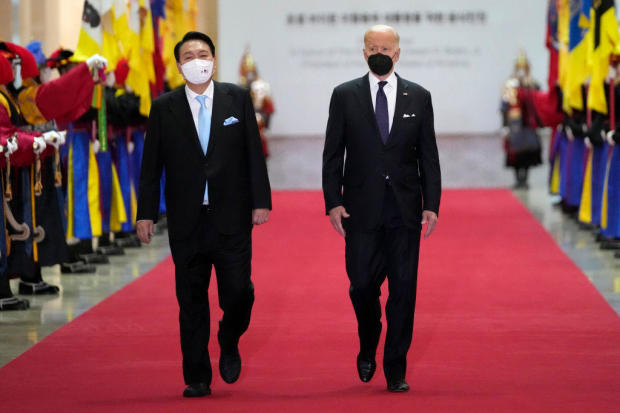
The impasse stems from the history of Japanese colonialism on the Korean peninsula, and Yoon recently announced a plan to resolve longstanding disputes over compensation for slave labor.
Mr. Biden said he was encouraged by the development, saying "our countries are stronger — and the world is safer and more prosperous — when we stand together."
Mr. Biden's first state visit was for French President Emmanuel Macron in December.
- South Korea
- Karine Jean-Pierre
- Emmanuel Macron
More from CBS News
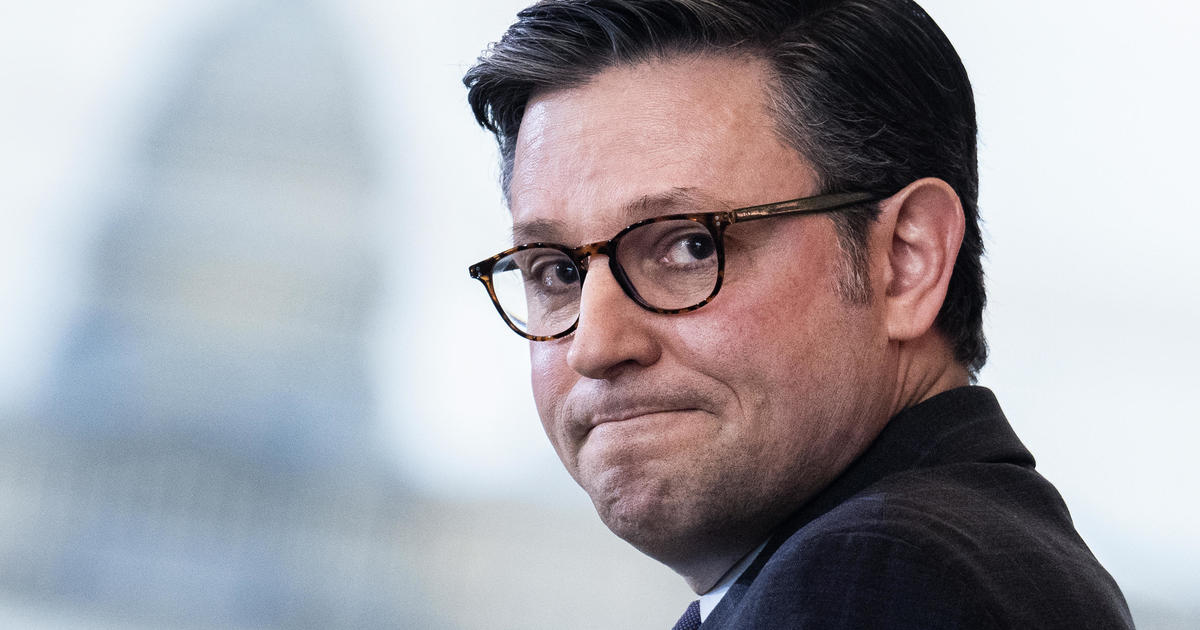
Could House control flip to Democrats? Early resignations leave GOP on edge
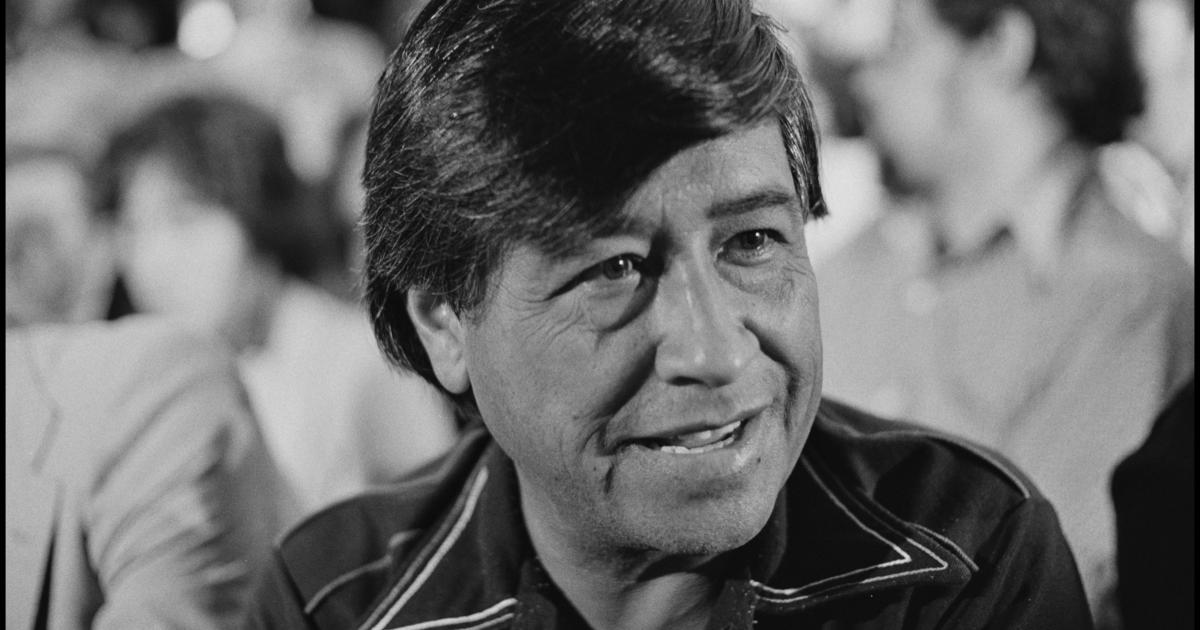
Cesar Chavez's family to endorse Biden over RFK Jr.

Why a company is offering staff a $75,000 incentive to have children
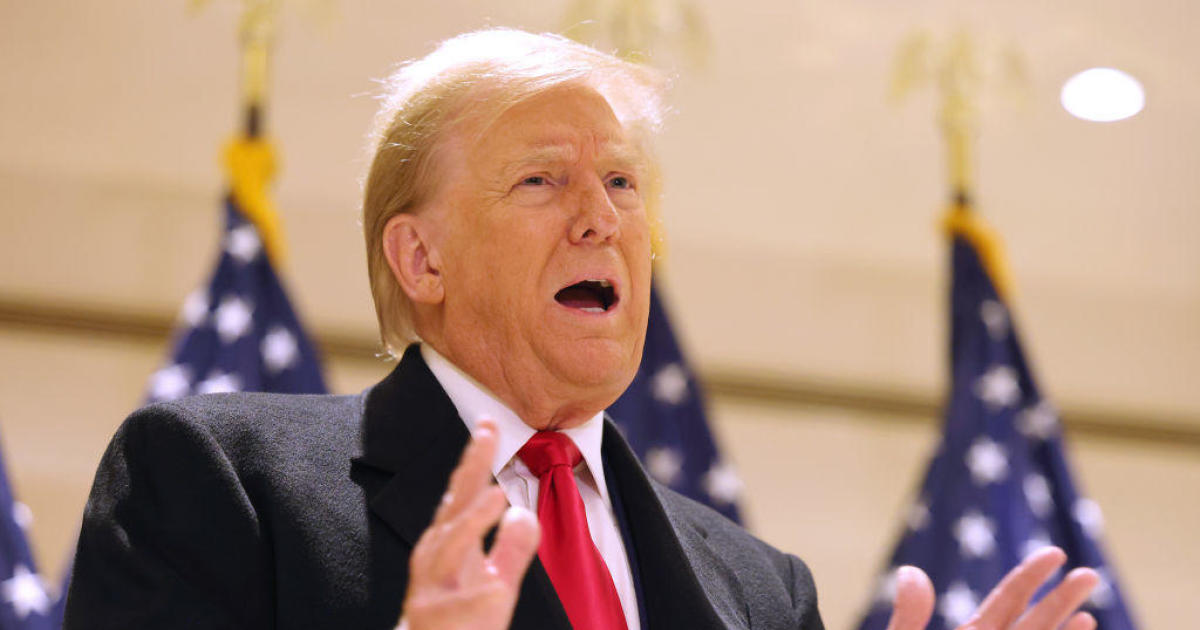
Trump allies hope to raise $33 million at Florida fundraiser
Ukraine, China main focus as South Korean president visits White House

SEOUL — President Biden and his South Korean counterpart, Yoon Suk Yeol, don’t have a whole lot in common.
They come from different ends of the political spectrum. Biden is liberal and a lifelong politician, while conservative Yoon first entered politics only two years ago to run for president. Being a father and grandfather is central to Biden’s identity; Yoon didn’t get married until he was 51 and has no children.
Yet the two men agree on one thing: The alliance between their countries is more important than ever.
Biden will host Yoon at the White House this week for a state dinner to commemorate the 70th anniversary of the mutual defense treaty that bound together their security interests after the Korean War ended with a cease-fire. On Thursday, Yoon is scheduled to deliver a speech at a joint meeting of Congress, the first South Korean president in a decade to do so.
For Yoon, who is 62 and has not spent much time in the United States, this week’s events will be a whirlwind opportunity to show he is serious about strengthening ties with the United States.
“The most important thing [for this week] is for it to be an opportunity for the people of both countries to properly recognize the historical significance of the … alliance and its achievements,” Yoon said in an interview with The Washington Post at his presidential office in Seoul, much of which was focused on his personal life and upcoming trip.
The alliance was forged in the aftermath of World War II, when the United States backed South Korea as the Soviet Union threw its communist weight behind North Korea and China.
“It is indeed the most successful alliance in history and, above all, an alliance based on values,” Yoon said.
Although Washington might quibble with the characterization, the security pacts with Japan and South Korea have become increasingly important as China has made clear its intent to challenge the United States’ global primacy economically and militarily.
Biden has emphasized the role of alliances in countering geopolitical challenges from East Asia to Eastern Europe.
Yoon can expect to come under pressure this week to join other democracies in supplying artillery shells to Ukraine, which is running critically low on ammunition.
Seoul is sitting on a vast ammunition stockpile but has refused to send any to Ukraine out of concern about its relations with Moscow. Last week, Yoon told the Reuters news agency that “it might be difficult” for South Korea to “insist only on humanitarian or financial support” if the situation worsens.
“Of course, Ukraine is under an illegal invasion, so it is appropriate to provide a range of aid, but when it comes to how and what we will supply, we cannot but consider many direct and indirect relationships between our country and the warring countries,” Yoon told The Post.
Other frictions remain in U.S.-South Korea relations, such as the repercussions of the Inflation Reduction Act and the Chips Act for South Korean manufacturers, as well as a growing desire among South Koreans for their country to acquire its own nuclear weapons despite the U.S. security guarantee.
Yoon said he expects to discuss a range of issues facing the alliance in Washington this week and beyond.
Under new, conservative president, South Korea is poised to adopt a more hawkish foreign policy
Official Washington has long believed that conservative South Korean presidents, who tend to hew closer to the United States than liberals do, are easier to work with.
Indeed, Yoon has cleared several hurdles in the countries’ alliance in his first year in office. He has resumed joint military exercises with the United States to prepare for a potential North Korean attack, worked with the United States to decrease global supply-chain dependence on China and, most notably, made a politically risky move to make amends with Japan after years of hostilities.
But Yoon, a political novice who squeaked into office just over a year ago, remains something of an enigma even to longtime Korea watchers in Washington. He closely guarded his ideological leanings during his career as a prosecutor, including two as prosecutor general — one of the most powerful positions in South Korea.
Forging his own path
To understand his thinking, it’s worth a rewind to his early career. In Korean, there’s a saying: If you fall seven times, you rise eight times.
Yet, it took Yoon — who graduated from one of South Korea’s most prestigious universities — nine tries to pass the national bar exam. South Korea’s exam is notoriously difficult and was even more selective then, but nine years was still a long time.
That meant he didn’t start his career as prosecutor until the unusually late age of 33.
South Korean President-elect Yoon Suk-yeol unveils foreign policy goals
The son of an academic, he had a comfortable childhood. Some friends who were close to him then say Yoon marched to the beat of his own drum and on his own timeline to pursue what he believed was important.
“If he believed he was doing what was right, then he didn’t care much about how others viewed his actions, or how other people evaluated him,” said Lee Chul-kyu, an attorney and Yoon’s college friend. “Many of us from those days recall how decisive he was, rather than grappling with indecision.”
As prosecutor, Yoon continued in this vein.
Among the most dramatic moments of his prosecutorial career came in 2013, when he investigated alleged election interference by the National Intelligence Service to support Park Geun-hye, the conservative presidential candidate and eventual victor.
During a tense National Assembly hearing at the time, Yoon revealed that he faced political pressure because of his investigation.
“I am not loyal to any person,” he said, an assertion of indignance that cemented his national image as a steely prosecutor upholding the law, and that was only strengthened when he became the presidential candidate for the political bloc Park once led.
But the 2013 investigation came at a professional cost. He was transferred to second-tier cities, effectively demoted and sidelined.
“I thought that if these institutions intervened even a little in the election and damaged people’s trust, it had to be corrected,” he recalled. “That’s why I carried out the investigation. If I were in that position again, I would probably do my work in that same way.”
Biden visit tests new South Korean president, a foreign policy novice
Yoon’s uncompromising approach has been evident in his first year as president and has been met with mixed reviews.
Take his effort to improve relations with Japan. For nearly 80 years, the two countries have had a rocky relationship over unresolved historical disputes stemming from Japan’s colonial occupation of Korea in the first half of the 20th century.
He has poured political capital into resolving a controversial labor compensation dispute at the center of Seoul-Tokyo tensions — even though 60 percent of South Koreans disapprove of his proposal — and last month became the first South Korean leader to visit Japan in 12 years , to show he wants to restore ties.
During the nearly 90-minute interview, Yoon spoke at length about his decision on Japan, saying he had been transparent about his intentions during his campaign. South Korea’s security concerns were too urgent to delay cooperation with Tokyo, he said, adding that some critics would never be convinced.
“Europe has experienced several wars for the past 100 years and despite that, warring countries have found ways to cooperate for the future,” he said. “I can’t accept the notion that because of what happened 100 years ago, something is absolutely impossible [to do] and that they [Japanese] must kneel [for forgiveness] because of our history 100 years ago. And this is an issue that requires decision. … In terms of persuasion, I believe I did my best.”
South Korea to compensate victims of Japan’s wartime forced labor
But his most polarizing moves have centered on gender. Yoon has drawn criticism for his proposal to eliminate the Ministry of Gender Equality and Family, and advocates say a dedicated pro-women and family agency is necessary given South Korea’s poor record on gender equality and its hostility toward the LGBTQ community.
The patriarchal system, combined with rising income inequality and a housing crisis, means younger Koreans are increasingly postponing or eschewing marriage and children.
Yoon himself married for the first time at 51 — something that is highly unusual in South Korea. His wife, Kim Keon Hee, 50, is a business executive who founded an art exhibition company. Yoon has said he and Kim connected over his casual interest in art history and art galleries.
“My happiest memory is finally meeting my wife and marrying her at a late age, in my 50s,” he said.
They have no children, but they do have six dogs and five cats, mostly rescues. (Yoon shares this love of pets with Biden, who also has a rescue dog .)
In private, Yoon is surprisingly unfiltered, according to those who met with him in closed-door meetings. He can be unpolished in public settings, too — and last year, it led to a viral hot-mic moment when he insulted lawmakers while at a global health event in New York City. Biden, who calls himself a “gaffe-machine,” could probably empathize.
Yoon said he has long been fascinated by the U.S. constitutional system and its global impact, and he enjoyed American songs and television shows growing up. Now, as president, he has a gift from Biden that he keeps on his desk — a copy of Harry S. Truman’s plaque that reads: “The buck stops here!”
Min Joo Kim contributed to this report.

We’re sorry, this site is currently experiencing technical difficulties. Please try again in a few moments. Exception: request blocked
Programs submenu
Regions submenu, topics submenu, launch of the united states guidance for online platforms on protecting human rights defenders online, defending democracy: ensuring election integrity in 2024, a conversation with u.s. ambassador to the united nations linda thomas-greenfield on u.s. diplomacy in the pacific islands, press briefing: japanese state visit and trilateral leaders’ summit.
- Abshire-Inamori Leadership Academy
- Aerospace Security Project
- Africa Program
- Americas Program
- Arleigh A. Burke Chair in Strategy
- Asia Maritime Transparency Initiative
- Asia Program
- Australia Chair
- Brzezinski Chair in Global Security and Geostrategy
- Brzezinski Institute on Geostrategy
- Chair in U.S.-India Policy Studies
- China Power Project
- Chinese Business and Economics
- Defending Democratic Institutions
- Defense-Industrial Initiatives Group
- Defense 360
- Defense Budget Analysis
- Diversity and Leadership in International Affairs Project
- Economics Program
- Emeritus Chair in Strategy
- Energy Security and Climate Change Program
- Europe, Russia, and Eurasia Program
- Freeman Chair in China Studies
- Futures Lab
- Geoeconomic Council of Advisers
- Global Food and Water Security Program
- Global Health Policy Center
- Hess Center for New Frontiers
- Human Rights Initiative
- Humanitarian Agenda
- Intelligence, National Security, and Technology Program
- International Security Program
- Japan Chair
- Kissinger Chair
- Korea Chair
- Langone Chair in American Leadership
- Middle East Program
- Missile Defense Project
- Project on Fragility and Mobility
- Project on Nuclear Issues
- Project on Prosperity and Development
- Project on Trade and Technology
- Renewing American Innovation Project
- Scholl Chair in International Business
- Smart Women, Smart Power
- Southeast Asia Program
- Stephenson Ocean Security Project
- Strategic Technologies Program
- Transnational Threats Project
- Wadhwani Center for AI and Advanced Technologies
- All Regions
- Australia, New Zealand & Pacific
- Middle East
- Russia and Eurasia
- American Innovation
- Civic Education
- Climate Change
- Cybersecurity
- Defense Budget and Acquisition
- Defense and Security
- Energy and Sustainability
- Food Security
- Gender and International Security
- Geopolitics
- Global Health
- Human Rights
- Humanitarian Assistance
- Intelligence
- International Development
- Maritime Issues and Oceans
- Missile Defense
- Nuclear Issues
- Transnational Threats
- Water Security
An Assessment of President Yoon’s State Visit to the White House

Photo: Chip Somodevilla/Getty Images
Critical Questions by Victor Cha
Published May 1, 2023
South Korean president Yoon Suk Yeol’s visit to the White House on April 26 was the fifth meeting with President Biden since their first summit held in Seoul in May 2022. The two leaders have built a good rapport through their continued engagement on the sidelines of the NATO Summit last summer, UN General Assembly in New York City this past fall, and the Association of Southeast Asian Nations (ASEAN) Summit in Phnom Penh last November.
Q1: What is the significance of Yoon being granted a state visit?
A1: A state visit is the highest honor bestowed by the White House on a visiting head of state. This was only the second such visit offered by the Biden administration (the other was to France) in large part because 2023 marks the 70th anniversary of the U.S.-Republic of Korea (ROK) alliance. The Biden administration also wishes to show strong support for Yoon’s foreign policy agenda which has shifted to deepening strategic ties with the United States and away from the hedging strategy of the previous administration.
Q2: What was the biggest takeaway from the summit?
A2: Aside from setting a high bar for musical performances by future world leaders at the White House, the main deliverable of the summit was the Washington Declaration . The declaration is the closest the alliance has come to a shared decisionmaking framework for the use of nuclear weapons in Korea, and effectively has committed the two allies to a nuclear planning group in the establishment of the Nuclear Consultation Group (NCG). NCG activities will include joint nuclear planning and execution concerning U.S. nuclear operations in a contingency, as well as exercising with U.S. Strategic Command. The United States also will maintain a regular rotation of air- and sea-based nuclear capable assets, starting with a nuclear ballistic missile submarine to South Korea for the first time since 1981. While this is not tantamount to the return of tactical nuclear weapons to the peninsula (as advocated by some), it does represent a presence of nuclear capable assets around the peninsula for deterrence and assurance purposes. The declaration is a significant document that sharpens the meaning and execution of the U.S. nuclear guarantee and will sit alongside the 1953 Mutual Defense Treaty. While this was not part of the declaration, the two sides also agreed in to education and training on nuclear deterrence for ROK military personnel.
Nevertheless, like most major documents or statements, the Washington Declaration has met some criticism in South Korea both from progressives and conservatives. The progressive opposition party has denounced the summit outcomes for warmongering and some from the conservative camp have criticized Yoon’s reaffirmation of South Korea’s nonnuclear status and compliance with the Non-Proliferation Treaty (NPT) during the summit. Neither criticism really holds water. Rather than warmongering, the Washington Declaration tries to address South Korean concerns that nuclear deterrence may not be strong enough to prevent North Korea from disturbing the peace. Yoon's statement on the NPT is simply a reiteration of existing South Korea policy, and is a responsible statement given all the loose talk and polling lately regarding nuclear weapons in South Korea. To have expected him to disavow the NPT during the summit would have been absurd.
Q3: Besides North Korea and extended deterrence, were there other noteworthy deliverables for the alliance?
A3: Yes, a lot. The two leaders used the 70th anniversary of the alliance to highlight and build the so-called New Frontiers agenda of the relationship. First, Biden and Yoon both featured the global nature of the alliance providing not just private goods to each party but also public goods for the world. Biden supported Yoon’s new global agenda, including hosting the next Democracy Summit, partnering with NATO (as member of NATO Asia-Pacific partners), and partnering with the G7. Yoon made about the boldest statements for an Asian leader on Ukraine, featured at the top of the joint statement, condemning Russia for war and for attacks against civilians and civilian infrastructure. The reference to attacks on civilians lines up with previous conditions Yoon has laid out for sending lethal equipment to Ukraine. Yoon has little room to maneuver under the current law, but his inclinations on this issue are clear as evidenced in this document and in his speech before a joint session of Congress.
Second, the two leaders used the summit to make significant progress on several New Frontier issues. There was a new joint statement on U.S.-ROK cooperation in quantum information science and technology and a new high-level Next Generation Critical and Emerging Technologies Dialogue (led by national security advisers). The two sides also agreed to establish a U.S.-ROK Strategic Cybersecurity Cooperation Framework. And it appears as though some streamlining of export controls policies will allow for more collaboration in space, that will facilitate more commercial and governmental cooperation in space. The two sides also affirmed continued cooperation on artificial intelligence (AI), biotechnology, medical products using AI, and biomanufacturing.
Q4: What are the takeaways on North Korean denuclearization and trilateral relations with the United States, Korea, and Japan?
A4: Biden and Yoon reiterated their commitment to diplomacy and denuclearization of North Korea, which was expected. The two put more emphasis, however, on human rights abuses in North Korea and also made explicit reference to aspirations for Korean unification in the joint statement, which was not seen in U.S. joint statements with the previous government.
On Japan, Biden made reference to Yoon’s “political courage” and leadership to take the initiative to improve South Korea's relations with Japan. This has become a regular adulation by White House officials regarding Yoon’s efforts with Japan. Behind the scenes, White House officials have expressed some frustration with the tepid response from Tokyo on the forced labor compensation deal and hope that Kishida will use an upcoming visit to South Korea in early May to do more. Biden and Yoon also made reference to economic security dialogues bilaterally and trilaterally with Japan. The latter suggests U.S. acceptance of a Yoon-proposed 2+2+2 on economic security.
Q5: How will China react to the U.S.-ROK summit?
A5: China will respond negatively to the summit. Yoon agreed to regularize anti-submarine and missile defense exercises, information-sharing, interdiction, anti-piracy, and also the Humanitarian Assistance and Disaster Relief (HADR) trilateral exercises with the United States and Japan. The commitment to missile defense exercises, China would say, is a violation of the “three no’s” agreement of the previous administration. The United States and South Korea also made a very strong (and new) statement on opposing economic coercion which clearly refers to China (though unnamed). South Korea also agreed to a new and strong statement on opposing any changes to the status quo in the Taiwan Straits through use of force, as well as “unlawful maritime claims, the militarization of reclaimed features, and coercive activities” in the South China Sea. All of these are new major statements that will surely anger China, as they demonstrate a clear shift by South Korea to the United States and away from the previous hedging strategy.
Q6: Were there any big deliverables on economic/trade issues?
A6: The Biden administration’s acknowledgment of the intent to work closely with the Yoon government on the Inflation Reduction Act (IRA), CHIPS and Science Act, and export controls suggests that going forward, there might be more consultation with Korea and other key partners on rule-making rather than unilateral disclosures. Yet there was no sense that any new measures had been offered at this summit. However, it is noteworthy that U.S. companies have announced about $5.9 billion investments into South Korea, including from Netflix and Corning.
On climate change, both sides reiterated their Nationally Determined Contributions under the Paris Agreement. They also remained committed to nuclear energy cooperation, but no apparent resolution was reached on the legal dispute between Westinghouse and KEPCO, which will hold up any further collaboration.
Victor Cha is senior vice president for Asia and Korea Chair at the Center for Strategic and International Studies (CSIS) in Washington, D.C.
Critical Questions is produced by the Center for Strategic and International Studies (CSIS), a private, tax-exempt institution focusing on international public policy issues. Its research is nonpartisan and nonproprietary. CSIS does not take specific policy positions. Accordingly, all views, positions, and conclusions expressed in this publication should be understood to be solely those of the author(s).
© 2024 by the Center for Strategic and International Studies. All rights reserved.

Programs & Projects
Trade tensions and spy leaks loom over South Korean president’s White House visit
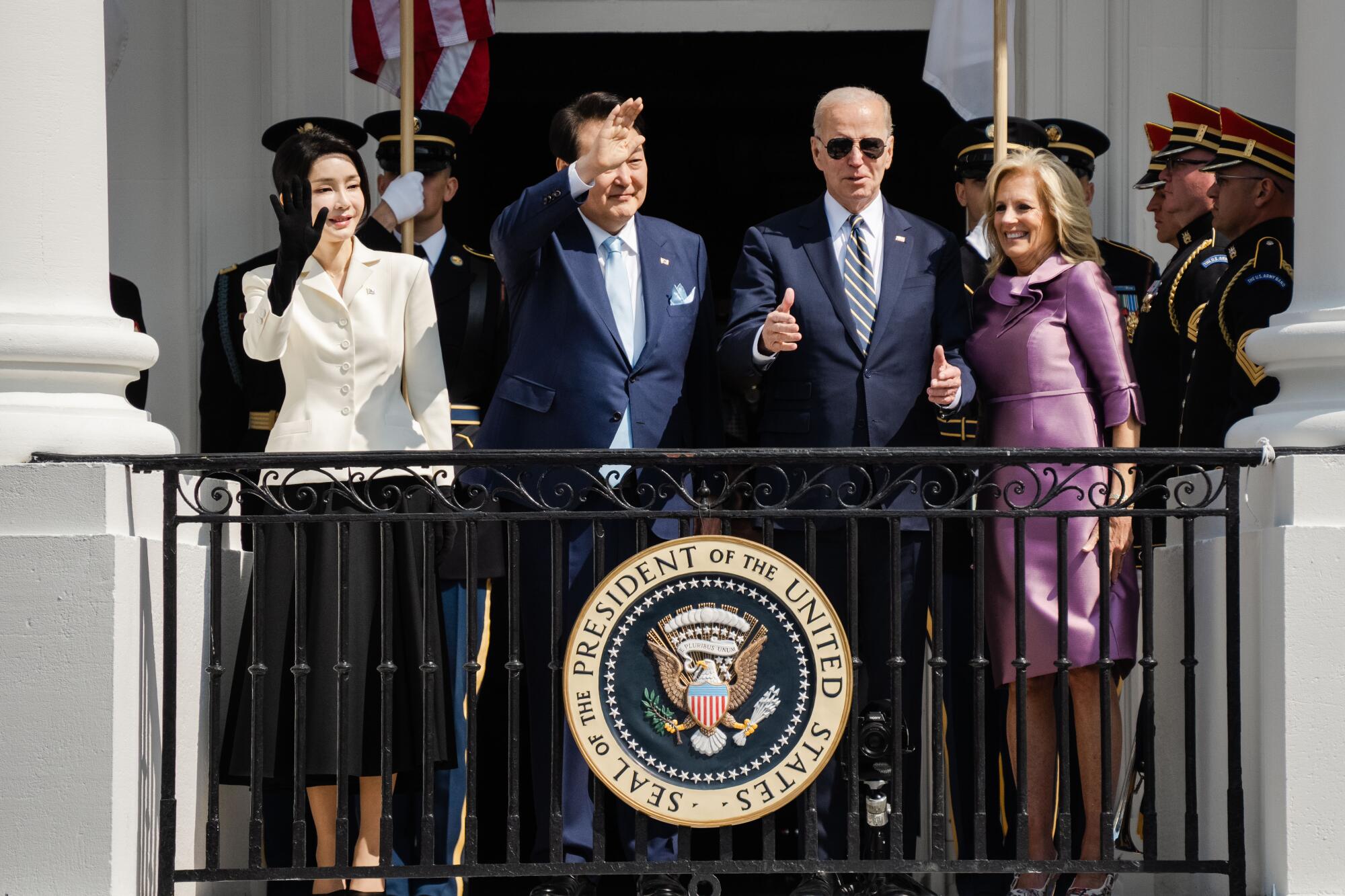
- Show more sharing options
- Copy Link URL Copied!
South Korean President Yoon Suk-yeol has received the red-carpet treatment this week as Washington and Seoul mark the 70th anniversary of their alliance. Yoon’s weeklong itinerary features a high-profile summit with President Biden, a glittering state banquet — an honor reserved for America’s closest allies — and a joint address to Congress.
But beneath the pomp and ceremony, thorny issues are at stake.
South Korean companies are worried about how Biden’s efforts to promote American manufacturing and limit the growth of China’s high-tech sector might affect them. And earlier this year, a leak of classified Pentagon documents revealed details of U.S. espionage against South Korea, embarrassing both countries and causing political headaches for Yoon.
Both countries are also hoping to counter North Korea’s aggressive missile testing. The two leaders unveiled a new agreement Wednesday to bolster extended deterrence — the idea that the U.S. will defend its allies with its full military capabilities, including nuclear weapons — in response to mounting threats from North Korea.
Called the Washington Declaration, the agreement will give South Korea more insight and input into U.S. military planning and strengthen training between the two nations in exchange for Seoul’s commitment to not develop its own nuclear weapons.
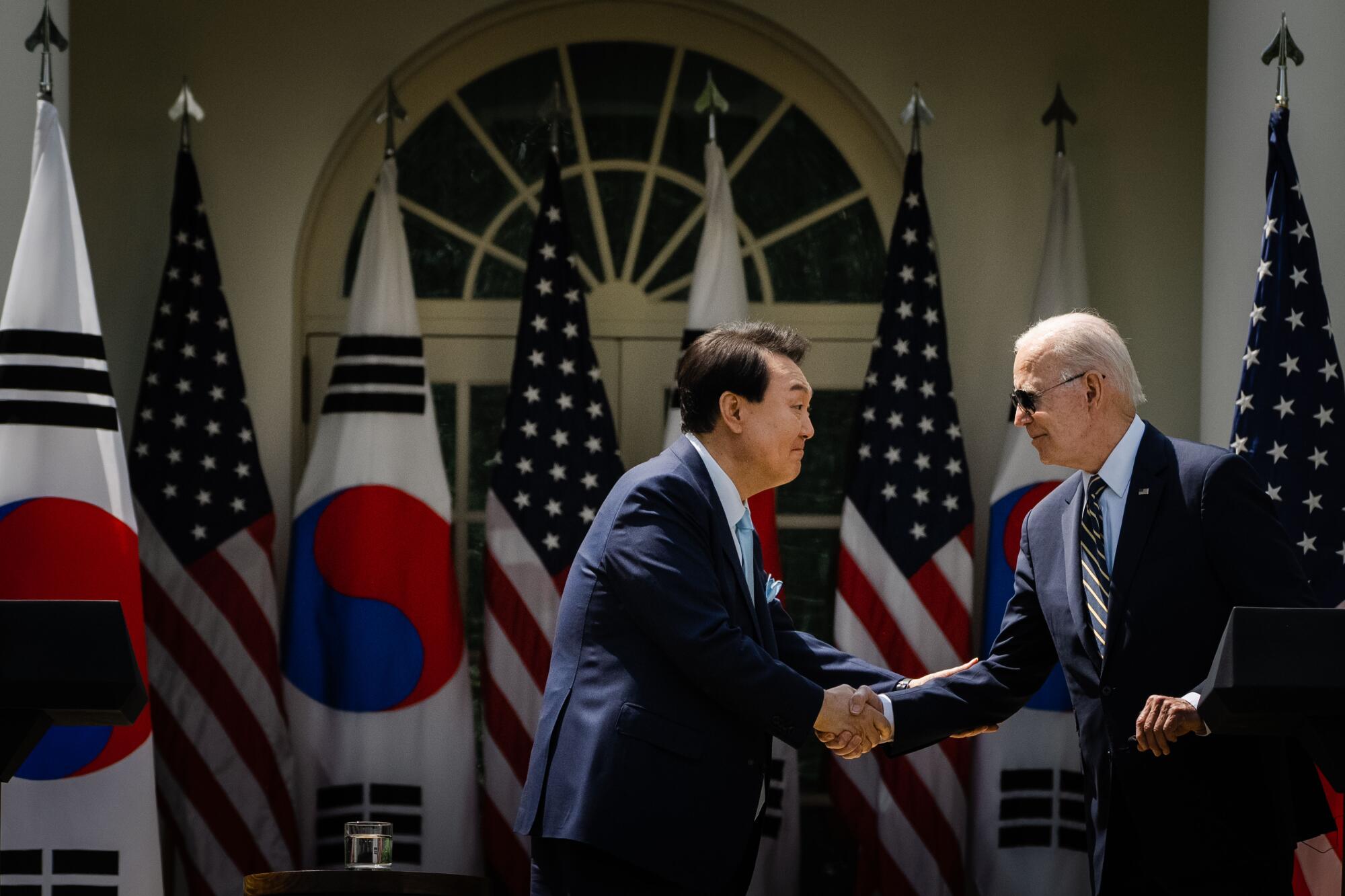
The U.S. will also send a ballistic missile submarine on routine visits to South Korea for the first time since the 1980s as a visible demonstration of U.S. military might.
Biden called the nations’ alliance “ironclad” and delivered a stark warning to Pyongyang during a joint news conference Wednesday afternoon in the White House Rose Garden.
“A nuclear attack by North Korea against the United States or its allies and partners is unacceptable and will result in the end of whatever regime were to take such an action,” he said, adding that the U.S. remained open to diplomatic talks to “bolster stability on the peninsula.”
Yoon vowed to respond to any nuclear attack “swiftly, overwhelmingly and decisively using the full force of the alliance, including U.S. nuclear weapons.”
The two leaders rolled out a suite of other initiatives to cooperate on cybersecurity, economic investments and other areas to further solidify the alliance in the face of North Korea’s record number of nuclear missile tests this year.
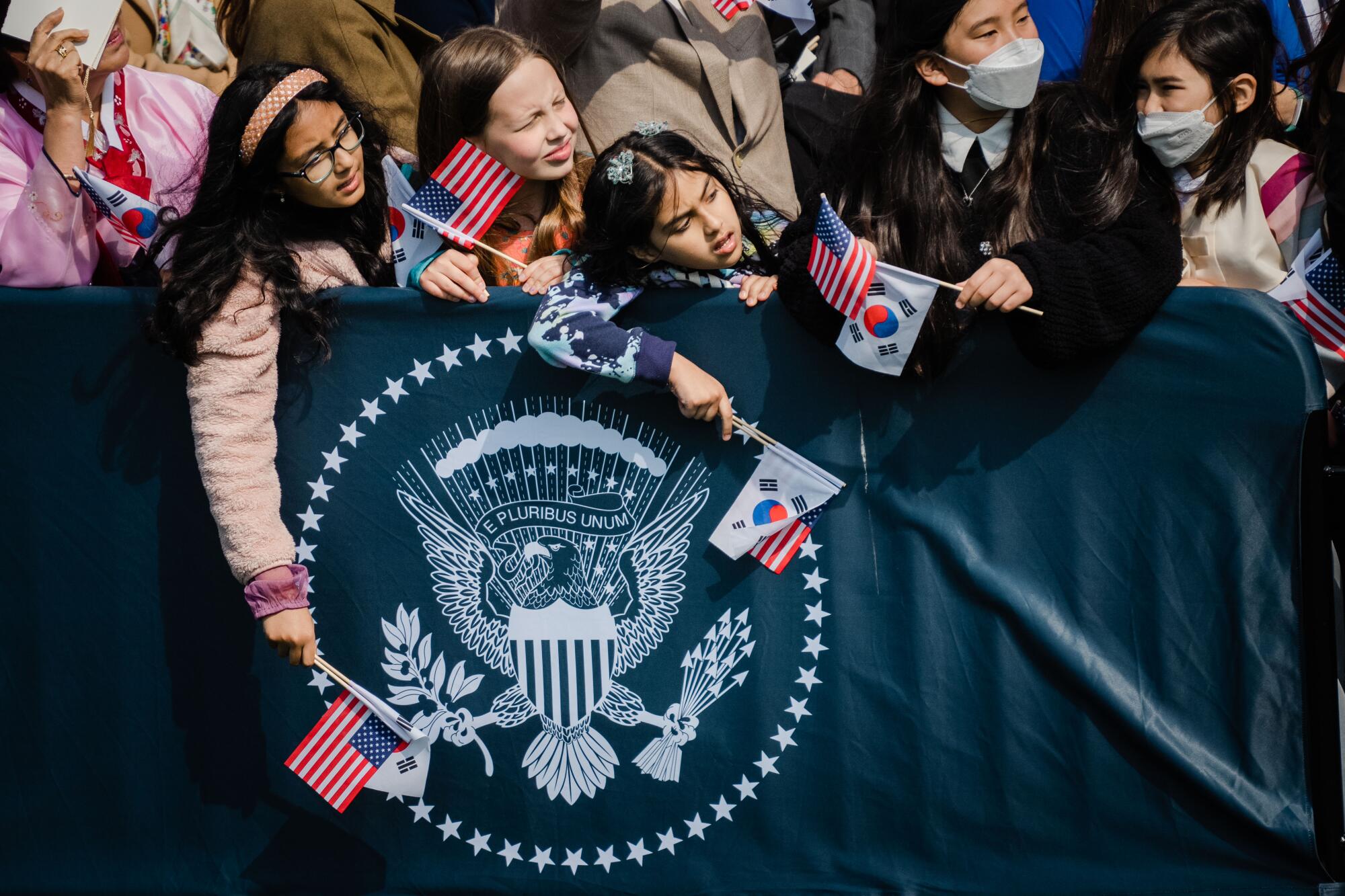
Yoon’s visit is a “springboard for connecting Korea to this broader web of alliance relationships in the region, whether we’re talking about security cooperation [or] economic security issues ... and interacting with other stakeholders in the region, including Southeast Asian countries and Pacific Islands,” said Nicholas Szechenyi, deputy director for Asia at the Center for Strategic and International Studies, a Washington-based think tank.
Yoon, a conservative politician who came to office last year, has made fortifying military and diplomatic ties with the U.S. a centerpiece of his foreign policy.
He has resumed joint military exercises with the United States, coordinated with the U.S. to decrease reliance on China for global supply chains and, more critically, thawed relations with Japan despite a bitter historical dispute over Korean forced labor during Tokyo’s colonial rule — a decision that prompted domestic backlash.
At Wednesday’s news conference, Biden thanked him for his “political courage and personal commitment to diplomacy with Japan.”
While North Korea is a priority and a perennial issue for the U.S. and South Korea that both countries are aligned on, “the subtext is China,” according to Victor Cha, Korea chair at the Center for Strategic and International Studies.
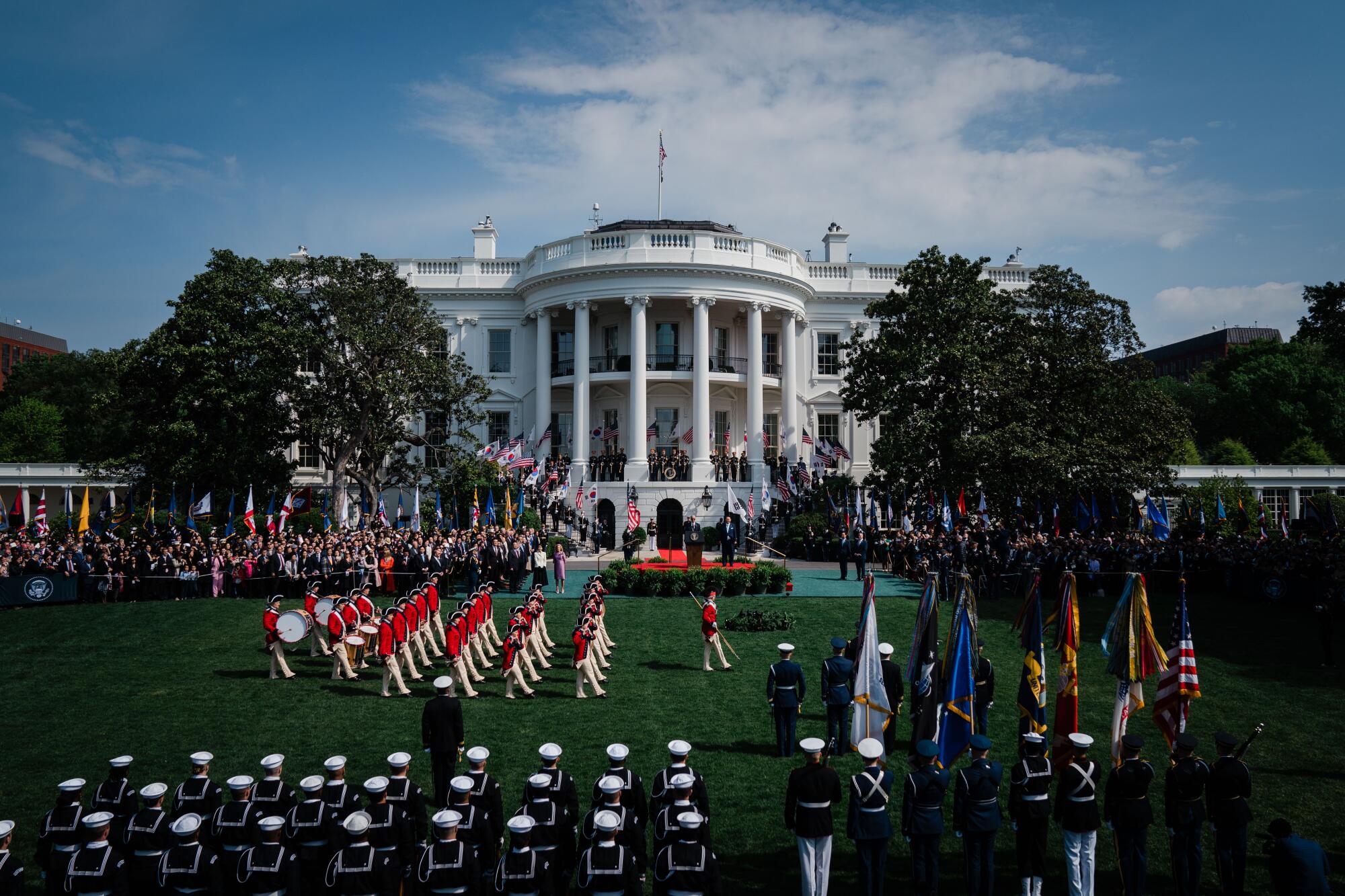
As Washington intensifies its economic confrontation with Beijing, Biden is working to shore up U.S. influence throughout the Indo-Pacific region. He will host Philippine President Ferdinand Marcos Jr. at the White House next week, and is set to travel to Japan for the Group of 7 summit in Hiroshima on May 19-21.
Biden has tried to quiet South Korean companies’ concerns about their ineligibility for subsidies under his Inflation Reduction Act, which provides tax credits for electric vehicles that are assembled in North America or include key components that are sourced domestically.
Before Yoon arrived at the White House, General Motors and South Korea’s Hyundai announced billions in new investment to produce electric vehicle battery cells in the U.S. with South Korean battery makers.
But Biden also faces friction over the $50-billion CHIPS and Science Act. The law gives federal funds to semiconductor manufacturers that agree to limit advanced chip production in China over the next 10 years. U.S. export controls on computer chip equipment designed to choke China’s access to the advanced technology have also rankled Seoul. Japan and the Netherlands have imposed similar restrictions.
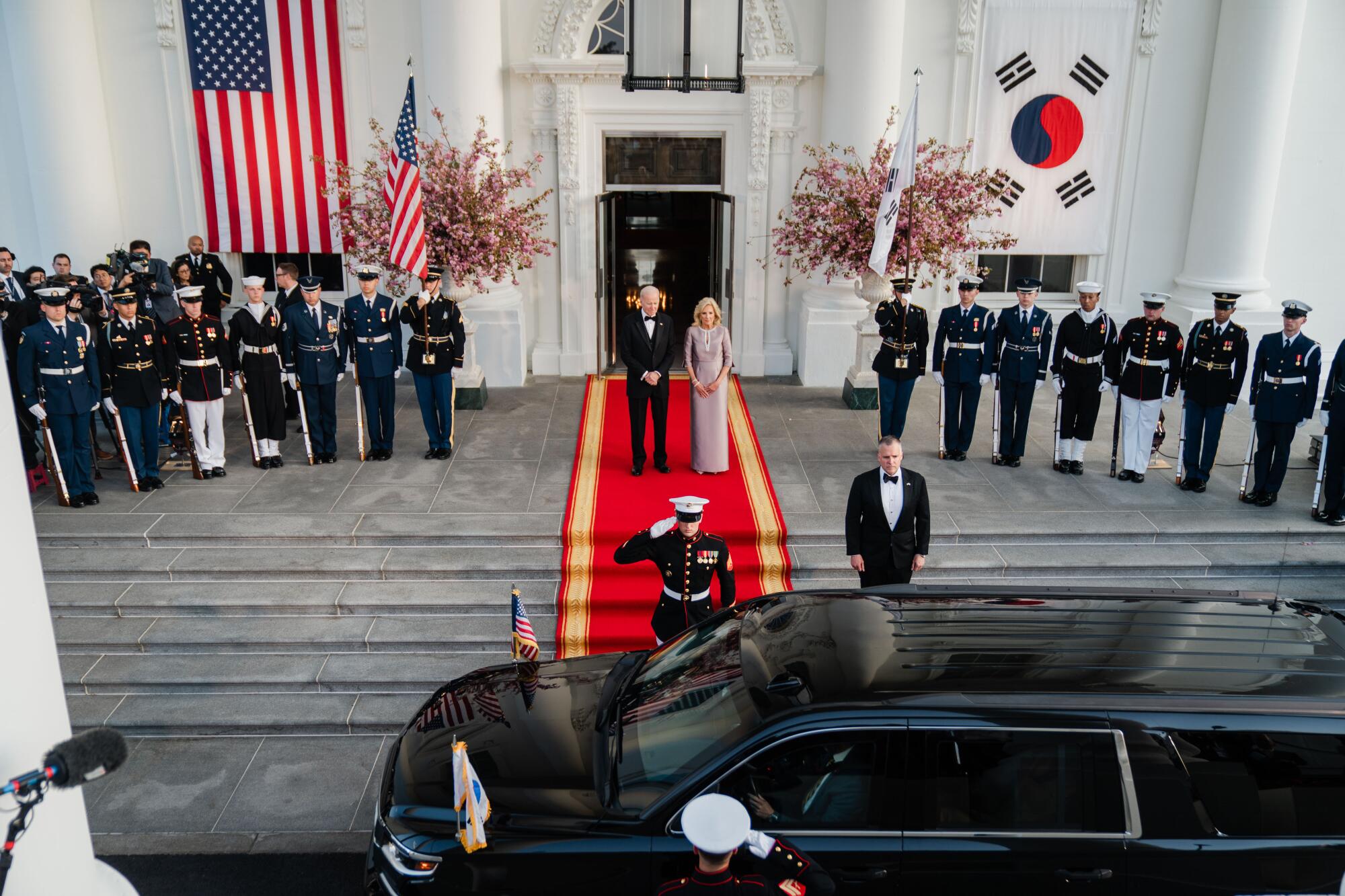
South Korean companies Samsung and SK Hynix received a one-year exemption from the U.S. export ban, but a solution will have to be negotiated when it expires in October.
“South Korea is very much reliant on its semiconductor industry as part of its broader economic strength, and that industry is heavily invested in China,” said Frank Aum, an expert on Northeastern Asia at the U.S. Institute of Peace.
Yoon is under pressure to return from his visit to the White House with further assurance of Washington’s dedication to trade arrangements and defense against the nuclear-armed Pyongyang as he looks to smooth over relations following the leak of classified U.S. documents.
The leaked intelligence showed that top South Korean officials were concerned that ammunition South Korea sold to the U.S. would wind up in Ukraine, violating Seoul’s policy of not supplying lethal aid to countries in conflict. The revelation prompted criticism among South Koreans, but White House officials have brushed off any tensions caused by the breach.
Yoon told reporters the two nations were “communicating and sharing necessary information,” but declined to say whether Biden had provided him any assurances.
Scott Snyder, senior fellow for Korea studies at the Council on Foreign Relations, said that today’s relationship with Seoul has to be “an alliance powered by chips, batteries and clean technology,” but that there are “drag” issues that complicate ties, including the leaked Pentagon documents and the South Korean public’s reluctance to get involved in Ukraine.
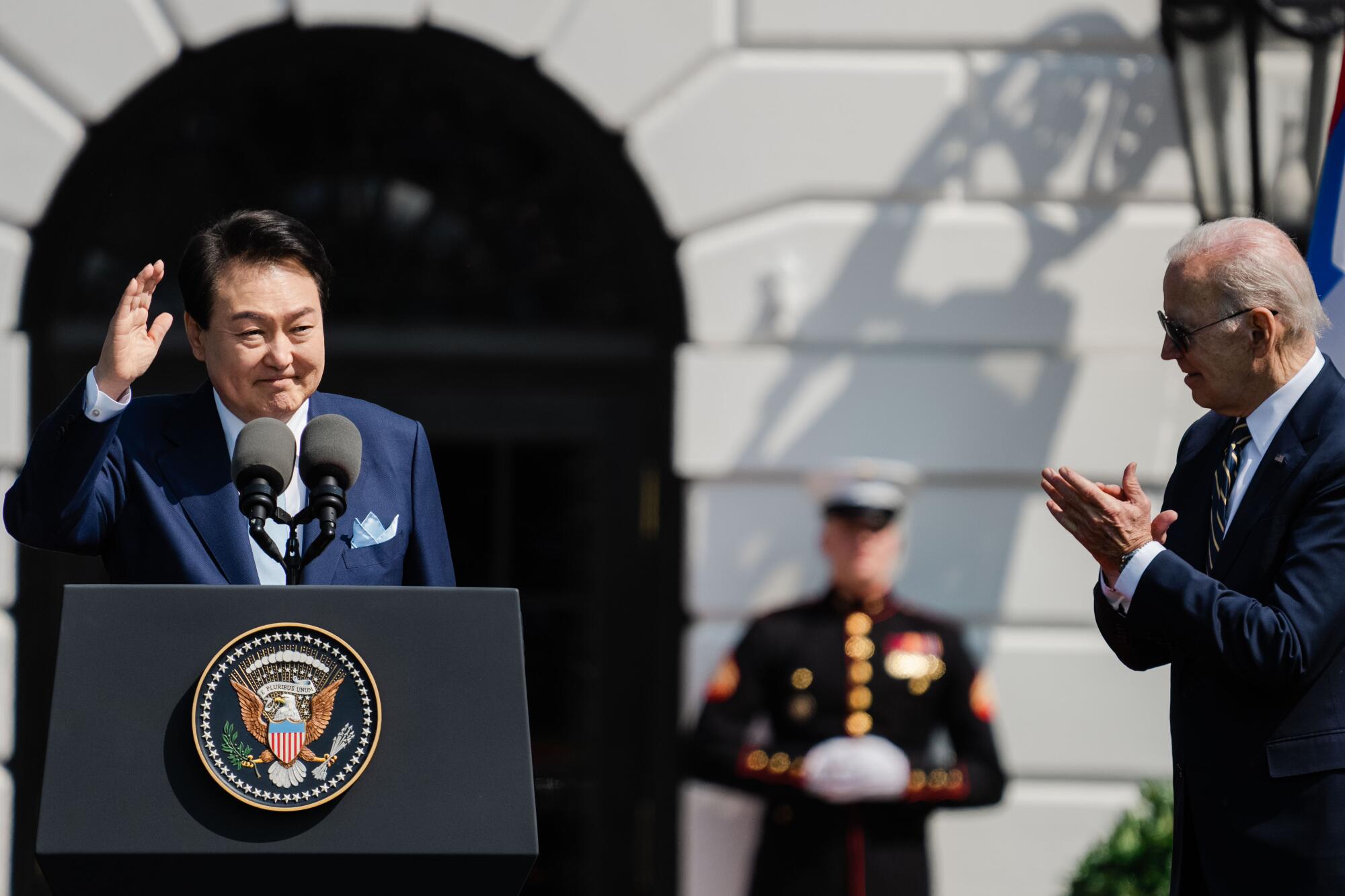
“It’s a little bit ironic, because I think that the alliance is probably at its highest point that it’s been, maybe in the [70-year] history of the alliance, in terms of intensity and depth of coordination and ... breadth of scope,” Snyder said. “And yet, at the same time, there are these underlying issues of trust that are there that could trip things up and might have a negative impact on President Yoon’s public approval.”
Yoon began his six-day visit on Tuesday by touring a NASA facility with Vice President Kamala Harris, and later laid a wreath at the Korean War Veterans Memorial with his wife, Kim Keon-hee, Biden and First Lady Jill Biden.
He also met with Netflix co-Chief Executive Ted Sarandos, who announced the streaming giant would invest $2.5 billion in Korean entertainment over the next four years.
Yoon is expected to meet with studio executives from Disney, Sony Pictures and others at the Motion Picture Assn. headquarters in Washington on Thursday.
“It’s a new frontier for the alliance,” Cha said, “beyond the sort of traditional security and free trade components of the relationship.”
More to Read
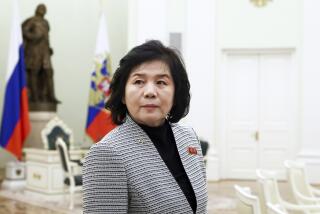
North Korea stresses alignment with Russia against U.S. and says Putin could visit at an early date
Jan. 21, 2024
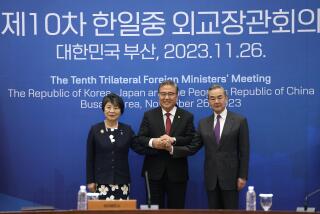
South Korea, Japan and China agree to resume trilateral leaders’ summit, but without specific date
Nov. 26, 2023
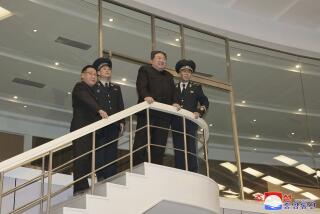
South Korea partially suspends inter-Korean agreement after North’s satellite launch
Nov. 22, 2023
Start your day right
Sign up for Essential California for news, features and recommendations from the L.A. Times and beyond in your inbox six days a week.
You may occasionally receive promotional content from the Los Angeles Times.

Courtney Subramanian is a White House reporter for the Los Angeles Times in Washington, D.C.

Tracy Wilkinson covers foreign affairs from the Los Angeles Times’ Washington, D.C., bureau.

Kent Nishimura is a former staff photographer with the Los Angeles Times, based in Washington, D.C. Born in Taiwan, Nishimura immigrated to the United States, grew up in Hawaii and is a graduate of the University of Hawaii at Manoa. His work has been recognized by Pictures of the Year International, the National Headliner Awards, the White House News Photographers Assn. and the National Press Photographers Assn., among others. He has worked on staff at newspapers across the United States and freelanced for many national and international publications before joining The Times in 2017.
More From the Los Angeles Times
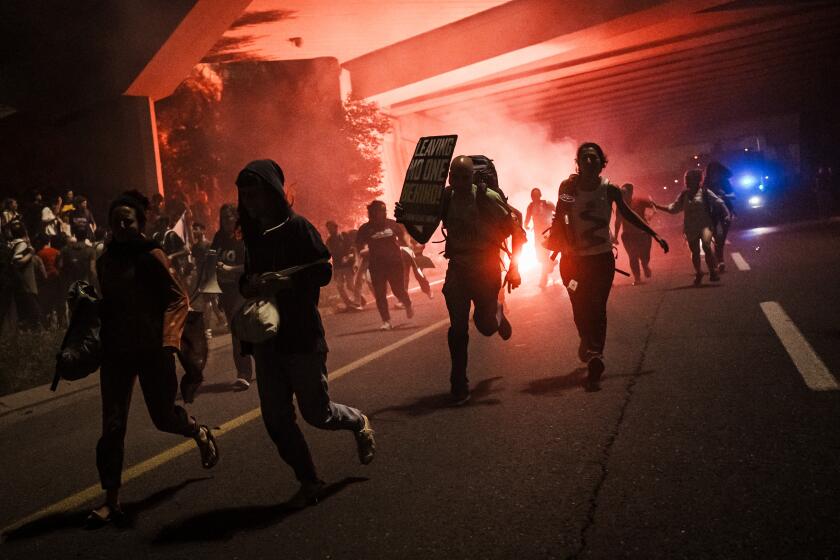
World & Nation
Israelis stage largest protest since war began to increase pressure on Netanyahu
March 31, 2024

The Census is changing its categories on race and ethnicity. Here’s what that means for Latinos
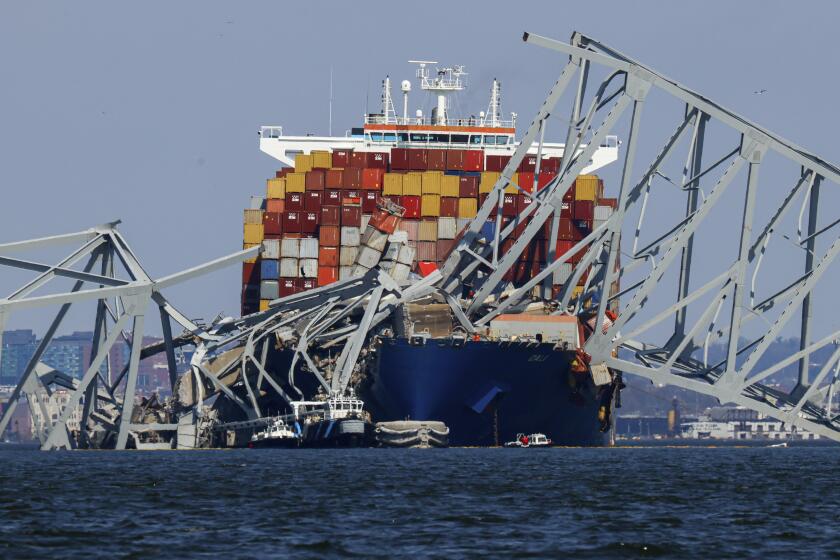
Complicated task removing twisted steel, concrete from Baltimore bridge continues
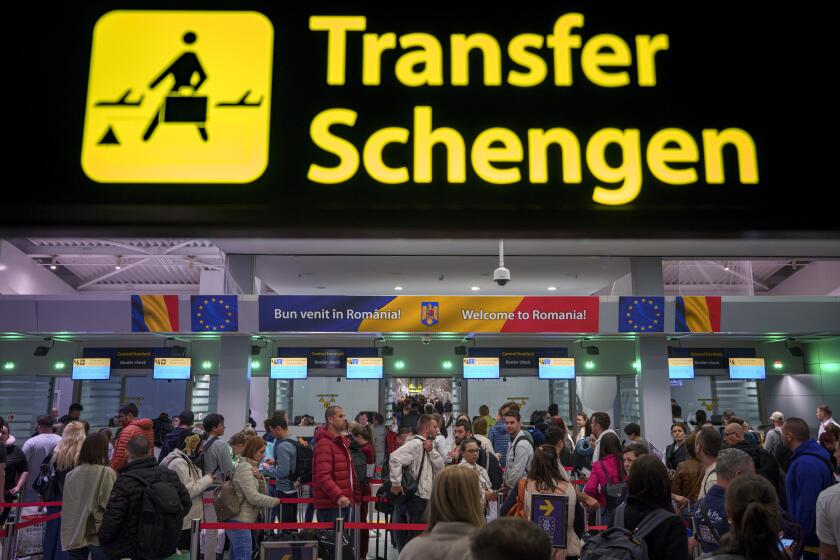
Romania and Bulgaria join Europe’s Schengen travel zone but keep land border checks
Putin's spy chief visited North Korea, Russian intelligence service says
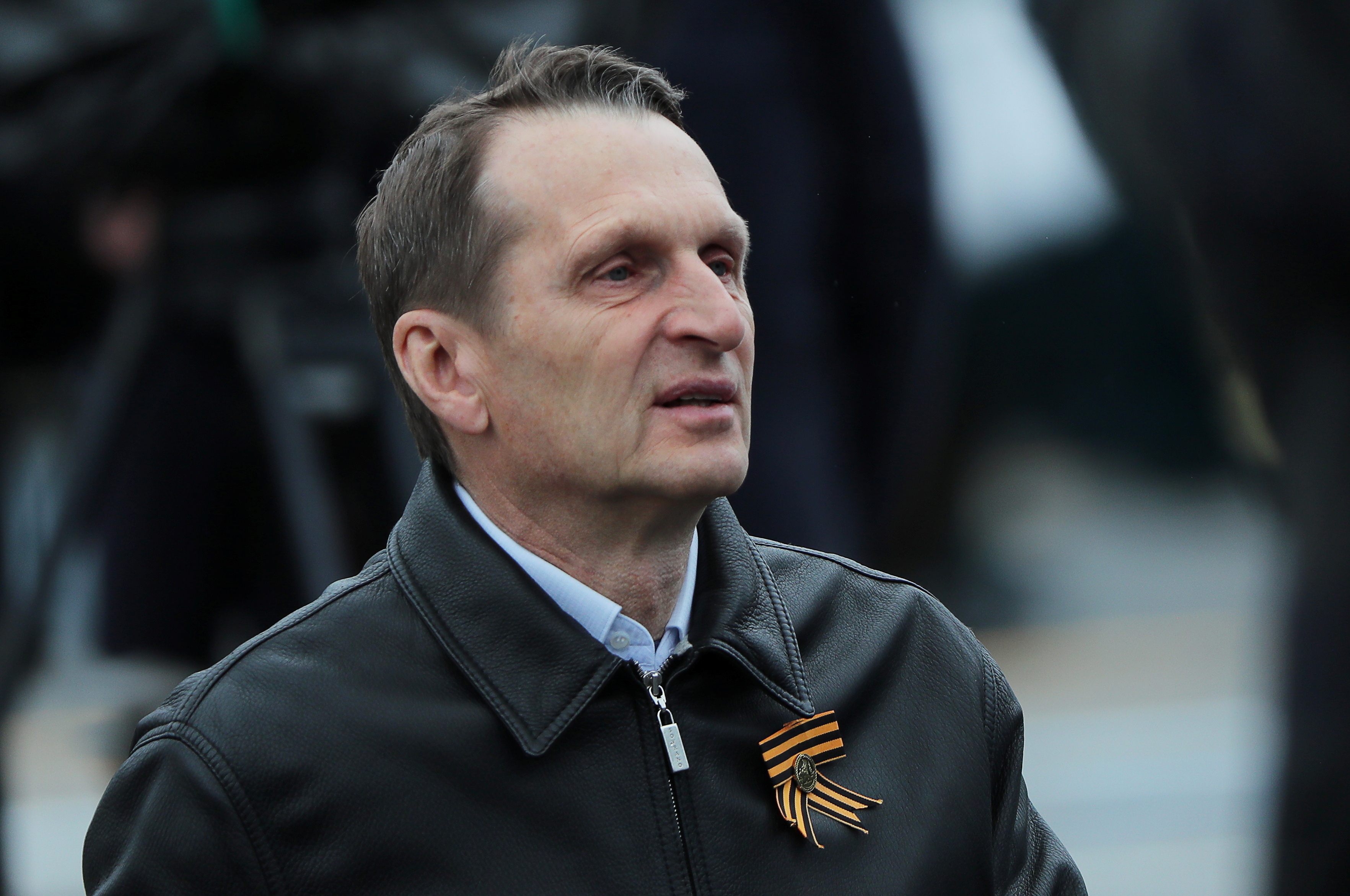
- Russian foreign intelligence chief visits Pyongyang
- Naryshkin discusses deepening ties with North Korea
- Naryshkin was in North Korea March 25-27, SVR says
- Putin and Kim strengthening ties
The Reuters Daily Briefing newsletter provides all the news you need to start your day. Sign up here.
Reporting by Hyunsu Yim in Seoul and Guy Faulconbridge in Moscow; Editing by Sandra Maler and Philippa Fletcher
Our Standards: The Thomson Reuters Trust Principles. , opens new tab
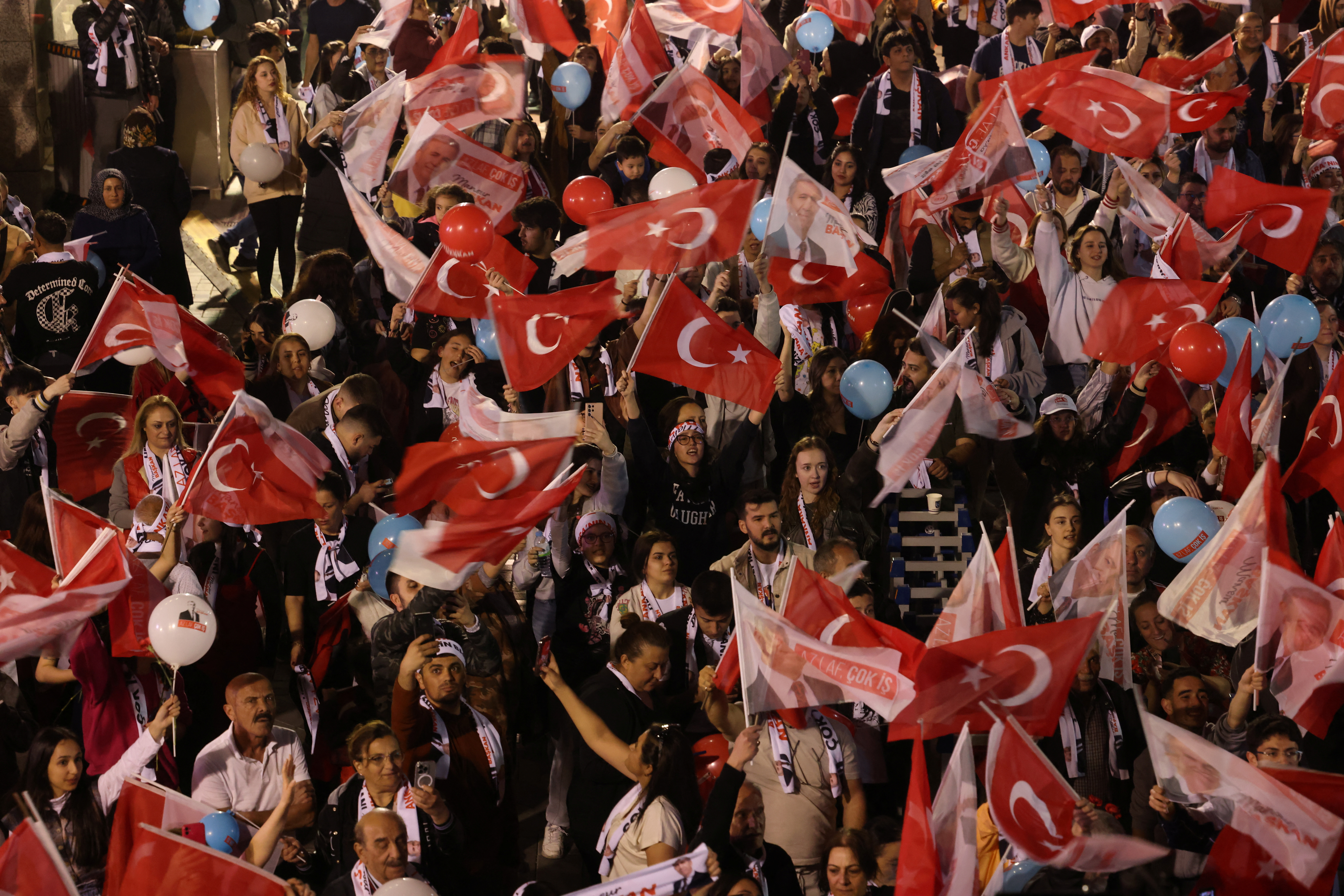
Turkey's resurgent opposition thumps Erdogan in pivotal local elections
It marked the worst defeat for Tayyip Erdogan and his AK Party in their more than two decades in power, and could signal a change in the country's divided political landscape. Erdogan called it a "turning point" in a post-midnight address.
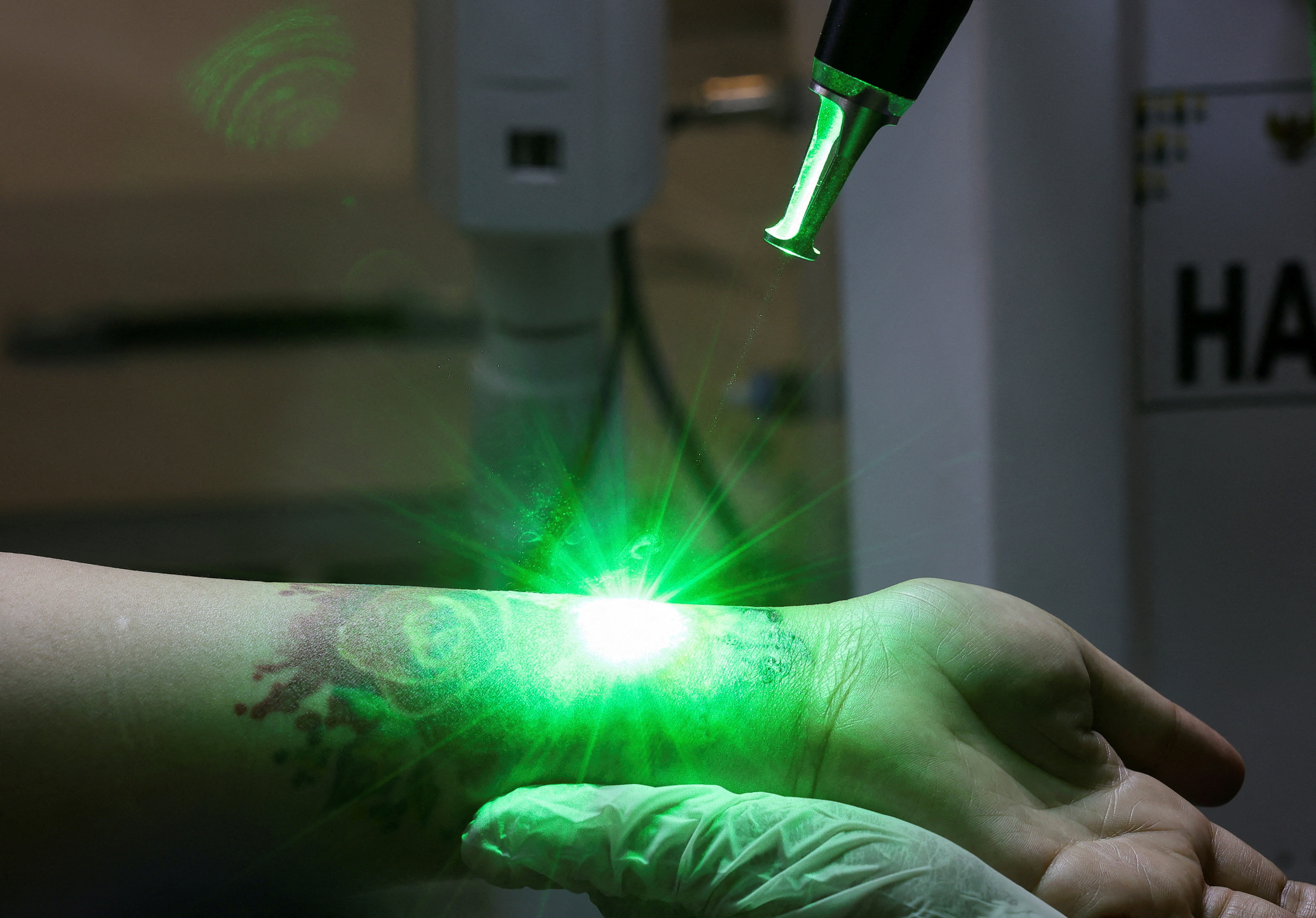
Russian shelling killed at least three people in different regions of eastern Ukraine on the front of the more than two-year-old war against Russia, local officials said, and two more in Lviv region, far from the front lines.
- International edition
- Australia edition
- Europe edition
Russia-Ukraine war: White House says US passed written warning of Moscow attack to Russia – as it happened
US describe Russian’s allegation that Ukraine was involved in attack as ‘nonsense’ and says it passed warning to Russian security services
- 3d ago Closing summary
- 3d ago US dismisses 'nonsense, propaganda' Russian concert attack claims against Ukraine
- 3d ago Zelenskiy warns war 'can come to Europe, and to the US'
- 3d ago Afternoon summary
- 3d ago Russia claims evidence links concert hall attackers to 'Ukrainian nationalist'
- 3d ago White House says US passed written warning of Moscow attack to Russia
- 3d ago Russia's veto of North Korea sanctions monitors a 'reckless action', says the White House
- 3d ago Russian investigators say they have obtained evidence of links between Moscow concert hall attackers and Ukraine - RIA report
- 3d ago Russia blocks renewal of North Korea sanctions monitors
- 4d ago France blocks fake Ukraine war recruitment website
- 4d ago Russia strikes Ukraine's Kharkiv with aerial bombs killing at least one civilian, say local officials
- 4d ago Poland and Ukraine hold talks on farm imports dispute
- 4d ago Kremlin says questions about the missing after concert attack are for investigators
- 4d ago Putin's spy chief visited North Korea, Russian intelligence service says
- 4d ago Russia will not attack Nato countries, Putin says
- 4d ago Opening summary
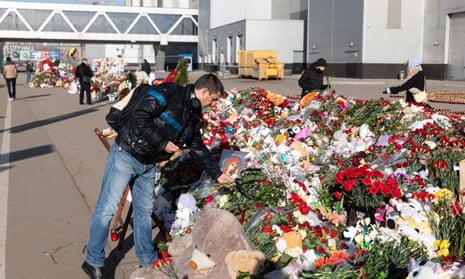
White House says US passed written warning of Moscow attack to Russia
The White House on Thursday described Russia ’s allegation that Ukraine was involved in the attack on the Crocus city concert hall as “nonsense”, saying it was clear that Islamic State was “solely responsible”.
According to Reuters, in a briefing to reporters, the White House national security spokesperson John Kirby said that the US passed a written warning of an extremist attack to Russian security services, one of many provided in advance to Moscow .
Closing summary
Here’s a recap of today’s latest developments:
Russian investigators claimed on Thursday they had uncovered evidence that the gunmen who killed more than 140 people in an attack on a concert hall near Moscow last week were linked to “Ukrainian nationalists”. While it described the nature of the alleged evidence, it did not publish it. In a statement, the state investigative committee claimed the attackers had received significant amounts of cash and cryptocurrency from Ukraine, and that another suspect involved in terrorist financing had been detained.
The White House on Thursday described Russia’s allegation that Ukraine was involved in the attack on the Crocus city concert hall as “nonsense”, saying it was clear that Islamic State was “solely responsible”. In a briefing to reporters, the White House national security spokesperson John Kirby said that the US passed a written warning of an extremist attack to Russian security services, one of many provided in advance to Moscow.
Russia vetoed on Thursday the annual renewal of a panel of experts monitoring enforcement of longstanding UN sanctions against North Korea over its nuclear weapons and ballistic missile programme. The move comes amid US-led accusations that North Korea has transferred weapons to Russia, which Moscow has used in its war in Ukraine. Both Moscow and Pyongyang have denied the accusations.
The White House called Russia’s veto of the renewal of North Korea sanctions monitors a “reckless action” that “further undermines” the UN security council’s actions on North Korea. South Korea’s UN ambassador Joonkook Hwang said the veto was “almost comparable to destroying a CCTV to avoid being caught red-handed”, while the deputy US ambassador to the UN, Robert Wood, told the council that Moscow had “undermined the prospect of the peaceful, diplomatic resolution of one of the world’s most dangerous nuclear proliferation issues”.
Russia has no designs on any Nato country and will not attack Poland, the Baltic states or the Czech Republic but if the west supplies F-16 fighters to Ukraine then they will be shot down by Russian forces, president Vladimir Putin said late on Wednesday. “The idea that we will attack some other country – Poland, the Baltic States, and the Czechs are also being scared – is complete nonsense. It’s just drivel,” Putin said, according to a Kremlin transcript released on Thursday.
Volodymyr Zelenskiy, the Ukrainian president, has warned that Vladimir Putin will push Russia’s war “very quickly” on to Nato soil unless he is stopped in Ukraine. In an interview with CBS, Zelenskiy acknowledged that his troops are not prepared to defend against another imminent major Russian offensive, and highlighted the urgency for American Patriot missile defense systems and more artillery.
Poland’s prime minister on Thursday hosted his Ukrainian counterpart for long-awaited talks designed to ease friction over Ukrainian farm imports and border blockades by disgruntled Polish farmers. On Thursday, Polish prime minister Donald Tusk welcomed his counterpart Denys Shmyhal to Warsaw.
Putin’s foreign intelligence chief paid a visit to North Korea this week to deepen bilateral cooperation between Moscow and Pyongyang and discuss broader regional security, Russia’s spy service said on Thursday. Sergei Naryshkin, the head the SVR, Russia’s foreign intelligence service, visited Pyongyang on 25-27 March, the SVR said. North Korea’s KCNA state media first reported the visit, said Reuters.
The Kremlin gave no indication on Thursday that Russian president Vladimir Putin plans to visit family members of those killed in last Friday’s attack on a Moscow concert hall , which killed 143 people. “If any contacts are necessary, we will inform you accordingly,” Kremlin spokesperson Dmitry Peskov said, when asked if Putin planned to meet family members of the dead.
Security measures in the Ukrainian capital Kyiv will be tightened after a spate of Russian ballistic missile attacks and threats of escalation , a city official said on Thursday. Russia staged concerted airstrikes on Ukraine’s energy system last week in what Moscow said was part of a series of “revenge” strikes in response to Kyiv’s bombardment of Russian regions.
Russia struck the north-eastern city of Kharkiv with aerial bombs on Wednesday for the first time since 2022, killing at least one civilian and wounding 16 others, local officials said. The airstrikes caused widespread damage, hitting several residential buildings and damaging the city’s institute for emergency surgery.
Authorities in the Mykolaiv region, near the Black Sea in southern Ukraine, said 12 people were injured and six residential buildings were damaged in a Russian strike on the city on Wednesday afternoon with a ballistic missile.
In an overnight attack on the southern Ukraine region of Zaporizhzhia, Shahed drones struck a residential area, injuring two women aged 72 and 74 , according to regional governor Ivan Fedorov. Rescue services said seven buildings were damaged.
Volodymyr Zelenskiy, the Ukrainian president, has appointed Oleh Ivashchenko as the new head of Ukraine’s foreign intelligence service.
A Russian military aircraft crashed into the sea on Thursday off the Crimean port of Sevastopol, the Russian-installed governor of the region, Mikhail Razvozhayev, said. The pilot safely ejected and was picked up by rescuers, he added.
The Kremlin said on Thursday complete silence was needed when it came to discussions about possible prisoner exchanges involving Evan Gershkovich, a Wall Street Journal reporter arrested in Russia a year ago on suspicion of espionage . Gershkovich, 32, became the first US journalist arrested on spying charges in Russia since the cold war when he was detained by the Federal Security Service (FSB) on 29 March. The reporter, the Wall Street Journal and the US government all deny he is a spy.
Ukraine asked western allies for additional air defences in an extraordinary meeting of the Nato-Ukraine Council that took place at ambassadors’ level on Thursday. Rustem Umerov, the Ukrainian defence minister, briefed the ambassadors and “called on Nato member states to provide additional air defence systems and missiles to protect Ukrainian cities and citizens”.
Ukraine’s foreign minister arrived in New Delhi on Thursday for a two-day visit to boost bilateral ties and cooperation with India , which considers Russia a time-tested ally from the cold war-era.
Poland’s Internal Security Agency (ABW) has carried out searches as part of an investigation with other European security services into alleged Russian espionage , the agency said on Thursday.
French authorities uncovered a website containing a fake recruitment drive for French volunteers to join the war in Ukraine, the defence ministry said on Thursday. The site has now been taken down by French services, a government source, who asked not to be named, told AFP without giving further details on the nature of the operation.

The Moscow attacks appear to have been the work of the group’s branch in Afghanistan, known as Islamic State Khorasan Province (ISKP) .
ISKP, which was founded in 2015 , has targeted propaganda and outreach to central Asia and previously has made multiple efforts to launch recruits into Europe and Russia. Turkey has also been a focus of activity. The four suspects presented in court by Russia were from Tajikistan.
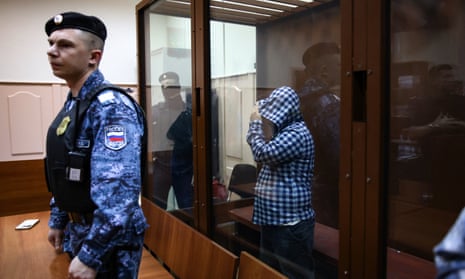
Islamic State (IS) remains defeated in its core strongholds of the Middle East but has made significant progress in Africa and parts of south Asia, winning territory and resources that could serve as a launchpad for a new campaign of extremist violence, analysts and officials believe.
European governments have moved to their highest levels of alert for years after the attack on a concert hall in Moscow last week by militants from IS that killed 140 people .
The attack in Moscow, the most lethal Islamist extremist operation ever in Europe , was claimed by IS, which, officials believe, has been planning new operations against European targets for several years.
Between 2015 and 2019, when IS ran a so-called caliphate across a swath of land it controlled in eastern Syria and western Iraq, the group’s central leadership had little need of its newly established affiliates to launch operations in Europe, as it had all resources to hand with foreign recruits, money and training camps. This led to a series of lethal attacks in France and Belgium .
However, years of counterterrorism operations by local security forces, the US and others, have degraded IS in its former strongholds, and the group is fragmented and weak.
Western security officials with close knowledge of IS in Iraq and Syria said the group had abandoned its project of rebuilding the so-called caliphate but that successful strikes against international targets were seen as “good for morale and the IS brand and compensate for failure closer to home”.
Zelenskiy warns war 'can come to Europe, and to the US'
Volodymyr Zelenskiy, the Ukrainian president, has warned that Vladimir Putin will push Russia’s war “very quickly” on to Nato soil unless he is stopped in Ukraine.
In an interview with CBS published today, Zelenskiy acknowledged that his troops are not prepared to defend against another imminent major Russian offensive.
“We need help now,” the Ukrainian leader said, highlighting the urgency for American Patriot missile defense systems and more artillery.
Zelenskiy warned that if Ukraine does lose, Putin will not stop there. He said:
At the moment, it’s us, then Kazakhstan, then Baltic states, then Poland, then Germany. At least half of Germany … This aggression, and Putin’s army, can come to Europe, and then the citizens of the United States, the soldiers of the United States, will have to protect Europe because they’re the Nato members.
He added that Ukraine is grateful for US support “but the United States don’t have the war going on … but it can come to Europe , and to the United States of America. It can come very quickly to Europe.”

Afternoon summary
It has gone 6pm in Kyiv and 7pm in Moscow. Here is a recap of today’s latest developments:
Russian investigators claimed on Thursday they had uncovered evidence that the gunmen who killed more than 140 people in an attack on a concert hall near Moscow last week were linked to “Ukrainian nationalists”. While it described the nature of the alleged evidence, it did not publish it. In a statement, the state investigative committee claimed the attackers had received significant amounts of cash and cryptocurrency from Ukraine , and that another suspect involved in terrorist financing had been detained.
Ukraine asked western allies for additional air defences in an extraordinary meeting of the Nato-Ukraine Council that took place at the ambassadors level on Thursday. Rustem Umerov, the Ukrainian defence minister, briefed the ambassadors and “called on Nato member states to provide additional air defence systems and missiles to protect Ukrainian cities and citizens”.
Ukraine’s foreign minister arrived in New Delhi on Thursday for a two-day visit to boost bilateral ties and cooperation with India , which considers Russia a time-tested ally from the cold war era.
French authorities uncovered a website containing a fake recruitment drive for French volunteers to join the war in Ukraine, the defence ministry said on Thursday. The site has been taken down by French services, a government source, who asked not to be named, told AFP without giving further details on the nature of the operation.
Reuters have more detail on the Russian military aircraft that crashed into the sea off of Sevastopol ( see 15:35 GMT )
According to Reuters, the Russian military aircraft crashed into the sea on Thursday off the Crimean port of Sevastopol , the Russian-installed governor of the region said.
The pilot safely ejected and was picked up by rescuers, Sevastopol governor Mikhail Razvozhayev said.
Earlier, Russian Telegram channels reported that a Russian Su-35 fighter jet had crashed near Sevastopol. It was not clear what caused the incident.
Russia claims evidence links concert hall attackers to 'Ukrainian nationalist'
Russian investigators claimed on Thursday they had uncovered evidence that the gunmen who killed more than 140 people in an attack on a concert hall near Moscow last week were linked to “Ukrainian nationalists”, reports Reuters.
Russia has said from the outset that it is pursuing a Ukrainian link to the attack, even though Kyiv has denied it and the militant group Islamic State has claimed responsibility.
According to Reuters, in a statement, the state investigative committee said for the first time that it had uncovered evidence of a Ukrainian link. While it described the nature of the alleged evidence, it did not publish it.
“As a result of working with detained terrorists, studying the technical devices seized from them, and analysing information about financial transactions, evidence was obtained of their connection with Ukrainian nationalists,” the statement said.
It claimed the attackers had received significant amounts of cash and cryptocurrency from Ukraine , and that another suspect involved in terrorist financing had been detained.
Eleven people were arrested in the first 24 hours after last Friday’s attack and eight of these, including the four suspected gunmen, have been placed in pre-trial detention. Seven are from Tajikistan and the other from Kyrgyzstan .
The US had publicly warned before the concert shooting that it had received intelligence of a possible attack by extremists in Russia. US officials say they believe it was Islamic State Khorasan , the network’s Afghan branch, that was responsible.
Russia says it is suspicious that the US was able to name the alleged perpetrator of the attack so soon after it took place. The head of Russia’s FSB Security Service said earlier this week, again without providing evidence, that he believed Ukraine, along with the US and the UK , were involved.
Western security analysts have said that the attack raised questions about the resourcing and priorities of Russian intelligence agencies that have been heavily focused on the Ukraine war and the need to stamp out opposition to it within Russia.
Reuters have a breaking news line on a Russian military plane which has crashed in the sea near Sevastopol , according to a local governor.
More deatails soon …
Russia's veto of North Korea sanctions monitors a 'reckless action', says the White House
The White House has called Russia’s veto of the renewal of North Korea sanctions monitors a “reckless action” that “further undermines” the UN security council’s actions on North Korea.
“This is almost comparable to destroying a CCTV to avoid being caught red-handed,” South Korea ’s UN ambassador Joonkook Hwang said of Russia ’s veto of the renewal of North Korea sanctions monitors, reports Reuters.
“Moscow has undermined the prospect of the peaceful, diplomatic resolution of one of the world’s most dangerous nuclear proliferation issues,” deputy US ambassador to the UN, Robert Wood, told the council.
According to Reuters, Russia’s UN ambassador Vassily Nebenzia questioned the experts’ work, telling the security council before the vote: “Its work is increasingly being reduced to playing into the hands of western approaches, reprinting biased information and analysing newspaper headlines and poor quality photos.”
North Korea has been under UN sanctions for its ballistic missile and nuclear programmes since 2006 and those measures have been strengthened over the years.
The panel of independent experts has monitored those UN sanctions for the past 15 years, reporting twice a year to the security council and recommending action for improved implementation of the measures.
The mandate for the current panel of experts will expire on 30 April 2024.
The panel’s most recent report was made public earlier this month and said it was investigating dozens of suspected cyber-attacks by North Korea that raked in $3bn to help it further develop its nuclear weapons programme.
“The panel, through its work to expose sanctions non-compliance, was an inconvenience for Russia,” said the UK’s UN ambassador Barbara Woodward. “But let me be clear to Russia – the sanctions regime remains in place and the UK remains committed to holding DPRK to account for its compliance.”
For the past several years the UN security council has been divided over how to deal with Pyongyang . Russia and Chin a, veto powers along with the US, the UK and France , have said more sanctions will not help and want such measures to be eased.
China and Russia say joint military drills by the US and South Korea provoke Pyongyang, while Washington accuses Beijing and Moscow of emboldening North Korea by shielding it from more sanctions.
Russian investigators say they have obtained evidence of links between Moscow concert hall attackers and Ukraine - RIA report
Reuters has a couple of breaking news lines on the wires about Russia ’s investigative committee saying it has obtained evidence of links between the Crocus city concert hall attackers and Ukraine . Reuters are citing the Russian state news agency RIA.
According to the RIA report, as shared by Reuters, Russian investigators said another suspect involved in “terrorist financing” has been detained.
More details soon …
Russia blocks renewal of North Korea sanctions monitors
Russia vetoed on Thursday the annual renewal of a panel of experts monitoring enforcement of longstanding UN sanctions against North Korea over its nuclear weapons and ballistic missile programme, reports Reuters.
The move comes amid US -led accusations that North Korea has transferred weapons to Russia, which Moscow has used in its war in Ukraine . Both Moscow and Pyongyang have denied the accusations, but vowed last year to deepen military relations.
China abstained from the vote on Thursday, while the remaining 13 council members voted in favor.
Authorities in the Mykolaiv region, near the Black Sea in southern Ukraine , said 12 people were injured and six residential buildings were damaged in a Russian strike on the city on Wednesday afternoon with a ballistic missile, according to the Associated Press (AP). In an overnight attack on the southern Ukraine region of Zaporizhzhia , Shahed drones struck a residential area, injuring two women aged 72 and 74, according to regional governor Ivan Fedorov . Rescue services said seven buildings were damaged. The Black Sea city of Odesa repelled three missile and drone attacks, officials said.
A duty that the EU plans to impose on Russian wheat supplies will hit the European market, Sergei Dankvert , head of Russian agriculture watchdog Rosselkhoznadzor , was quoted as saying by state-owned news agency Tass.
The imposition of duties could lead to a loss of grain handling capacity, while Russia would be able to divert to other markets the 2.5-3m metric tons of grain it had been shipping to the EU, Dankvert said, according to Reuters.
France blocks fake Ukraine war recruitment website
French authorities have uncovered a website containing a fake recruitment drive for French volunteers to join the war in Ukraine , the defence ministry said on Thursday, reports Agence France-Presse (AFP).
The site has now been taken down by French services, a government source, who asked not to be named, told AFP without giving further details on the nature of the operation.
The site, which is now inaccessible, said 200,000 French people were invited to “enlist in Ukraine”, with immigrants given priority.
A link to the site – that resembled the French army’s genuine recruitment portal – had been posted on X, the French defence ministry said.
“The site is a fake government site,” the ministry said, also on X, “and has been reposted by malevolent accounts as part of a disinformation campaign”.
According to AFP, the ministry did not name any suspects in the website spoof, but a government official, speaking on condition of anonymity, said the site bore “the hallmarks of a Russian or pro-Russian effort as part of a disinformation campaign claiming that the French army is preparing to send troops to Ukraine”.
French president Emmanuel Macron angered the Russian leadership last month by hardening his tone on the conflict sparked by Russia’s invasion of Ukraine, refusing to rule out sending ground troops and insisting Europe had to do all that was needed for a Russian defeat.
Similar recent examples of disinformation posts included pictures of French army convoys wrongly presented as moving towards the Ukrainian border, the official said.
The fake website invited potential recruits to contact “unit commander Paul” for information about joining.
The defence ministry and government cyber units are investigating, ministry staff told AFP.
The French government has recently stepped up efforts to denounce and fight what it says are Russian disinformation and destabilisation campaigns aimed at undermining French public support for Ukraine in its war against Russia.
- Ukraine war live
- Vladimir Putin
Most viewed
- Share full article
For more audio journalism and storytelling, download New York Times Audio , a new iOS app available for news subscribers.

- March 29, 2024 • 48:42 Hamas Took Her, and Still Has Her Husband
- March 28, 2024 • 33:40 The Newest Tech Start-Up Billionaire? Donald Trump.
- March 27, 2024 • 28:06 Democrats’ Plan to Save the Republican House Speaker
- March 26, 2024 • 29:13 The United States vs. the iPhone
- March 25, 2024 • 25:59 A Terrorist Attack in Russia
- March 24, 2024 • 21:39 The Sunday Read: ‘My Goldendoodle Spent a Week at Some Luxury Dog ‘Hotels.’ I Tagged Along.’
- March 22, 2024 • 35:30 Chuck Schumer on His Campaign to Oust Israel’s Leader
- March 21, 2024 • 27:18 The Caitlin Clark Phenomenon
- March 20, 2024 • 25:58 The Bombshell Case That Will Transform the Housing Market
- March 19, 2024 • 27:29 Trump’s Plan to Take Away Biden’s Biggest Advantage
- March 18, 2024 • 23:18 Your Car May Be Spying on You
- March 17, 2024 The Sunday Read: ‘Sure, It Won an Oscar. But Is It Criterion?’
Democrats’ Plan to Save the Republican House Speaker
Speaker mike johnson has faced fury from ultraconservatives after a bipartisan spending bill..
Hosted by Michael Barbaro
Featuring Catie Edmondson
Produced by Olivia Natt , Rikki Novetsky and Jessica Cheung
Edited by M.J. Davis Lin
With Rachel Quester
Original music by Dan Powell , Elisheba Ittoop and Marion Lozano
Engineered by Alyssa Moxley
Listen and follow The Daily Apple Podcasts | Spotify | Amazon Music
Against all odds and expectations, Speaker Mike Johnson keeps managing to fund the government, inflame the far right of his party — and hold on to his job.
Catie Edmondson, a congressional correspondent for The Times, explains why it might be Democrats who come to his rescue.
On today’s episode

Catie Edmondson , a congressional correspondent for The New York Times.

Background reading
Ultraconservatives immediately turned on Mr. Johnson after Congress passed spending legislation.
Enraged over the spending bill, Representative Marjorie Taylor Greene began the process of calling for a vote to oust the speaker .
There are a lot of ways to listen to The Daily. Here’s how.
We aim to make transcripts available the next workday after an episode’s publication. You can find them at the top of the page.
The Daily is made by Rachel Quester, Lynsea Garrison, Clare Toeniskoetter, Paige Cowett, Michael Simon Johnson, Brad Fisher, Chris Wood, Jessica Cheung, Stella Tan, Alexandra Leigh Young, Lisa Chow, Eric Krupke, Marc Georges, Luke Vander Ploeg, M.J. Davis Lin, Dan Powell, Sydney Harper, Mike Benoist, Liz O. Baylen, Asthaa Chaturvedi, Rachelle Bonja, Diana Nguyen, Marion Lozano, Corey Schreppel, Rob Szypko, Elisheba Ittoop, Mooj Zadie, Patricia Willens, Rowan Niemisto, Jody Becker, Rikki Novetsky, John Ketchum, Nina Feldman, Will Reid, Carlos Prieto, Ben Calhoun, Susan Lee, Lexie Diao, Mary Wilson, Alex Stern, Dan Farrell, Sophia Lanman, Shannon Lin, Diane Wong, Devon Taylor, Alyssa Moxley, Summer Thomad, Olivia Natt, Daniel Ramirez and Brendan Klinkenberg.
Our theme music is by Jim Brunberg and Ben Landsverk of Wonderly. Special thanks to Sam Dolnick, Paula Szuchman, Lisa Tobin, Larissa Anderson, Julia Simon, Sofia Milan, Mahima Chablani, Elizabeth Davis-Moorer, Jeffrey Miranda, Renan Borelli, Maddy Masiello, Isabella Anderson and Nina Lassam.
An earlier version of this episode incorrectly referred to the name of the bridge that collapsed in Baltimore. It is the Francis Scott Key Bridge, not the Francis Key Scott Bridge.
How we handle corrections
Catie Edmondson covers Congress for The Times. More about Catie Edmondson
Advertisement
- Cast & crew
Back to Black

The life and music of Amy Winehouse, through the journey of adolescence to adulthood and the creation of one of the best-selling albums of our time. The life and music of Amy Winehouse, through the journey of adolescence to adulthood and the creation of one of the best-selling albums of our time. The life and music of Amy Winehouse, through the journey of adolescence to adulthood and the creation of one of the best-selling albums of our time.
- Sam Taylor-Johnson
- Matt Greenhalgh
- Marisa Abela
- Eddie Marsan
- Jack O'Connell
- 1 Critic review

- Amy Winehouse

- Mitch Winehouse
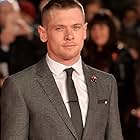
- Blake Fielder-Civil

- Cynthia Winehouse

- Janis Winehouse

- Raye Cosbert

- Aunt Melody

- See all cast & crew
- Production, box office & more at IMDbPro
More like this

Technical specs
- Runtime 2 hours 2 minutes
Related news
Contribute to this page.

- See more gaps
- Learn more about contributing
More to explore

Recently viewed
Mobile Menu Overlay
The White House 1600 Pennsylvania Ave NW Washington, DC 20500
U.S.-ROK Leaders’ Joint Statement
Over seventy years ago, the alliance between the United States and the Republic of Korea was forged on the battlefield, as we stood shoulder-to-shoulder in war. Bonded in common sacrifice, our partnership has helped to keep the peace in the decades since, allowing both of our countries and our peoples to thrive. The linchpin for stability and prosperity, our alliance has continued to evolve as the world around us has changed. Now, as the regional security environment in the Indo-Pacific grows more complex, and existential issues, from the COVID-19 pandemic to the threat of climate change, reshape the globe, we recommit ourselves to an ironclad alliance.
The United States and the Republic of Korea share a vision for a region governed by democratic norms, human rights, and the rule of law at home and abroad. We seek a partnership that continues to provide peace and prosperity for our peoples, while serving as a linchpin for the regional and global order. Above all, we are united in our determination to reinvigorate and modernize our ties for a new era. President Joseph R. Biden, Jr. is honored to welcome President Moon Jae-in of the Republic of Korea to Washington to begin a new chapter in our partnership. The Alliance: Opening a New Chapter
President Biden and President Moon reaffirm their mutual commitment to the defense of the Republic of Korea and their combined defense posture under the ROK-U.S. Mutual Defense Treaty, and President Biden affirms the U.S. commitment to provide extended deterrence using its full range of capabilities. We commit to strengthening the alliance deterrence posture, share the importance of maintaining joint military readiness, and reiterate our firm commitment to a conditions-based transition of wartime operational control. We also agree to deepen cooperation in other domains, including cyber and space, to ensure an effective joint response against emerging threats. We welcome the signing of a multi-year Special Measures Agreement, which enhances our combined defense posture and represents our dedication to the alliance.
The two sides reaffirm that close coordination on all matters related to global nonproliferation and safe, secure, and safeguarded uses of nuclear technology remain key characteristics of the alliance, and the United States recognizes the ROK’s global role in promoting nonproliferation efforts. Following consultations with the United States, the ROK announces the termination of its Revised Missile Guidelines, and the Presidents acknowledged the decision.
President Biden and President Moon emphasize their shared commitment to the complete denuclearization of the Korean Peninsula and their intent to address the Democratic People’s Republic of Korea’s (DPRK’s) nuclear and ballistic missile programs. We call for the full implementation of relevant UN Security Council resolutions by the international community, including the DPRK. President Moon welcomes the conclusion of the United States’ DPRK policy review, which takes a calibrated and practical approach that is open to and will explore diplomacy with the DPRK to make tangible progress that increases the security of the United States and the Republic of Korea. We also reaffirm our common belief that diplomacy and dialogue, based on previous inter-Korean and U.S.-DPRK commitments such as the 2018 Panmunjom Declaration and Singapore Joint Statement, are essential to achieve the complete denuclearization and establishment of permanent peace on the Korean Peninsula. President Biden also expresses his support for inter-Korean dialogue, engagement, and cooperation. We agree to work together to improve the human rights situation in the DPRK and commit to continue facilitating the provision of humanitarian aid to the neediest North Koreans. We also share our willingness to help facilitate the reunion of separated families of the two Koreas. We also agree to coordinate our approaches to the DPRK in lockstep. We underscore the fundamental importance of U.S.-ROK-Japan trilateral cooperation for addressing the DPRK, protecting our shared security and prosperity, upholding common values, and bolstering the rules-based order.
The significance of the U.S.-ROK relationship extends far beyond the Korean Peninsula: it is grounded in our shared values and anchors our respective approaches to the Indo-Pacific region. We agree we will work to align the ROK’s New Southern Policy and the United States’ vision for a free and open Indo-Pacific and that our countries will cooperate to create a safe, prosperous, and dynamic region. The United States and the ROK reaffirm support for ASEAN centrality and the ASEAN-led regional architecture. We agree to expand regional coordination on law enforcement, cybersecurity, public health and promoting a green recovery. We agree to work closely together to promote greater connectivity and foster digital innovation within ASEAN, while developing deeper people-to-people ties among Americans, Koreans, and the people of Southeast Asia. We will also consider opportunities for joint efforts to promote sustainable development, energy security, and responsible water management in the Mekong sub-region. The United States and the ROK also reaffirm support for enhanced cooperation with Pacific Island Countries and acknowledge the importance of open, transparent, and inclusive regional multilateralism including the Quad.
The United States and the Republic of Korea oppose all activities that undermine, destabilize, or threaten the rules-based international order and commit to maintaining an inclusive, free, and open Indo-Pacific. We pledge to maintain peace and stability, lawful unimpeded commerce, and respect for international law, including freedom of navigation and overflight in the South China Sea and beyond. President Biden and President Moon emphasize the importance of preserving peace and stability in the Taiwan Strait. As democracies that value pluralism and individual liberty, we share our intent to promote human rights and rule of law issues, both at home and abroad.
We resolutely condemn violence by the Myanmar military and police against civilians, and commit to continuing to press for the immediate cessation of violence, the release of those who are detained, and a swift return to democracy. We call on all nations to join us in providing safe haven to Burmese nationals and in prohibiting arms sales to Myanmar. The Way Forward: Comprehensive Partnership for a Better Future
President Biden and President Moon acknowledge that contemporary threats and challenges require us to deepen our partnership in new areas. We commit to forging new ties on climate, global health, emerging technologies, including 5G and 6G technology and semi-conductors, supply chain resilience, migration and development, and in our people-to-people relationship. President Moon welcomes U.S. leadership to enhance global climate ambitions through its hosting of the Leaders’ Summit on Climate on April 22, 2021. President Biden looks forward to the Republic of Korea’s contributions to achieve inclusive, international green recovery and net zero greenhouse gas emissions by hosting the P4G Seoul Summit on May 30-31. The United States has submitted an ambitious Nationally Determined Contribution, and welcomes the Republic of Korea’s plan to release early in October its provisional enhanced 2030 target, and by COP 26 its final enhanced 2030 target, aligned with efforts to limit the global average temperature increase to 1.5 degrees Celsius and with the global goal to achieve net zero greenhouse gas emissions no later than 2050. We will cooperate to enhance our efforts to achieve our 2030 targets and 2050 goals, including long-term strategies, set examples among the world leaders in reducing carbon emissions, conserve and enhance natural carbon sinks such as oceans and forests, and expand much-needed collaboration on technology and innovation to help achieve our long-term goals.
Building on President Moon’s declaration to end public financing for new overseas coal fired power plants and President Biden’s Executive Order on Tackling the Climate Crisis, the Republic of Korea and United States will work together at the OECD and in other international venues to end all forms of new public financing for unabated overseas coal-fired power plants.
The Republic of Korea and the United States will align official international financing with the global achievement of net zero greenhouse gas emissions no later than 2050 and deep emission reductions in the 2020s. The Republic of Korea looks forward to joining with the United States and other countries in contributing climate finance towards the new post-2025 mobilization goal under the Paris Agreement.
The United States and the Republic of Korea have been critical allies in the COVID-19 pandemic and on longstanding global health challenges, and President Biden expresses his gratitude for the ROK’s donation of critical medical supplies to the United States at its time of dire need. Against this backdrop, we agree to establish a comprehensive KORUS Global Vaccine Partnership to strengthen joint response capabilities for infectious disease through international vaccine cooperation, including focus areas on global expansion of production and related materials, as well as scientific and technological cooperation. Drawing on each of our strengths, Korea and the United States will work collaboratively to expand manufacturing of vaccines that have been demonstrated safe and effective, as assessed by Stringent Regulatory Authorities and/or the World Health Organization, for global benefit. The United States and Korea will partner to meet increasing demand for safe and effective COVID-19 vaccines in a timely manner. Based on the partnership, we will actively cooperate on greatly scaling up global COVID-19 vaccine supply, including through COVAX and in coordination with CEPI, to countries around the world toward ending the pandemic in the nearest future and preparing for the next biological threat. To this end, we will launch a senior-level experts group, the KORUS Global Vaccine Partnership Experts Group, to implement the partnership, comprised of scientists, experts and officials from our governments. Both countries will actively work together to ensure the success of COVAX, and the ROK commends the United States on its bold $4 billion contribution this year. To this end, and in recognition that we are both leaders in this fight, the ROK will increase its pledge to COVAX AMC substantially this year.
We agree to work together to strengthen and reform the World Health Organization by strengthening its ability to prevent pandemics through early and effective prevention, detection, and response to potential health emergencies, and by increasing its transparency and ensuring its independence. We will also support a transparent and independent evaluation and analysis of the origins of the COVID-19 outbreak and for investigating outbreaks of unknown origin in the future. We resolve to take decisive action to help the Indo-Pacific build better regional pandemic preparedness, and will work together and multilaterally to build the capacity of all countries to prevent, detect, and respond to infectious disease outbreaks. To move towards this goal, the ROK commits to increase its engagement in the Global Health Security Agenda Steering Group and Action Package Working Groups, and the ROK pledges a new $200M commitment for 2021-2025 period to support the GHSA target and help partner countries fill their gaps. The United States and the ROK will also work together with likeminded countries to create a new sustainable, catalytic health security financing mechanism.
The United States and the ROK are among each other’s largest trading and investment partners, and these strong economic ties, particularly the U.S.- Korea Free Trade Agreement (KORUS FTA), are a bedrock. The Presidents agreed to cooperate closely on the reform of the WTO and expressed their shared commitment to oppose unfair trade practices.
With the technological landscape rapidly changing, we agree to strengthen our partnership on critical and emerging technologies to promote our shared security and prosperity. We agree on the importance of careful screening of foreign investments and cooperation on export controls on critical technologies. Recognizing the importance of telecommunications security and vendor diversity, President Biden and President Moon commit to work together to develop open, transparent, and efficient 5G and 6G network architectures using Open-RAN technology. To this end, we agree to cooperate to increase resiliency in our supply chains, including in priority sectors such as semiconductors, eco-friendly EV batteries, strategic and critical materials, and pharmaceuticals. We also agree to work together to increase the global supply of legacy chips for automobiles, and to support leading-edge semiconductor manufacturing in both countries through the promotion of increased mutual investments as well as research and development cooperation. President Biden and President Moon commit to work together to develop a future-oriented partnership by leading innovation in the areas of clean energy, such as next generation batteries, hydrogen, and carbon capture and storage, and in the emerging technologies including Artificial Intelligence (AI), 5G, next generation communications network (6G), open-RAN technology, quantum technology, and bio-technology.
President Biden and President Moon also commit to strengthening their partnership in civil space exploration, science, and aeronautics research and will cooperate towards the ROK signing the Artemis Accords. Moreover, we commit to develop cooperation in overseas nuclear markets, including joint participation in nuclear power plant projects, while ensuring the highest standards of international nuclear safety, security, and nonproliferation are maintained.
President Biden and President Moon welcome the chance to strengthen development ties between the United States and the ROK. We are pleased to expand our partnership to facilitate closer collaboration between the U.S. Agency for International Development and the Korea International Cooperation Agency. We also recognize the importance of addressing the root causes of migration from Central America’s Northern Triangle countries to the United States. To this end, the ROK pledges to increase its financial commitment to development cooperation in the Northern Triangle countries to $220 million for the 2021-2024 period. The United States also welcomes the ROK’s initiatives to increase cooperation with the countries in Latin America and the Caribbean region, including digital and green cooperation. The enduring friendship between the United States and the Republic of Korea is fed by our vibrant people-to-people ties. Over 1.7 million Korean students have enrolled in United States educational institutions since 1955. More than two million ROK citizens visit, work, or live in the United States, and over 200,000 U.S. citizens reside in the ROK. More than 10,000 U.S. and ROK citizens have participated in sponsored exchange programs, including ROK political leaders. We take great pride in celebrating the 60th anniversary of the first Korean and American Fulbright grantees to visit each other’s countries, which demonstrates the depth and strength of the longstanding ties between the people of the United States and the ROK. Our extensive exchange programs promote common purpose between our countries; we agree to increase two-way exchanges of young environmental leaders to strengthen our ability to cooperate in this critical area. Moving forward, we place particular emphasis on supporting greater interaction between experts in science, technology, engineering and mathematics and empowering women and girls in these fields, to build a solid foundation for secure and sustainable innovation and economic resilience in both countries.
President Biden and President Moon also agree to redouble their commitment to democratic values, and the promotion of human rights at home and abroad. The strength of our democracies depends on women’s full participation in them. Together we will strive to end the abuse of women and girls, including domestic violence and cyber-exploitation, and to exchange best practices to close the gender wage gap–a challenge both our countries share. We agree to expand cooperation to combat corruption, and ensure the freedoms of expression and religion and belief. Finally, we join voices in condemning violence against the Asian-American and Pacific Islander community, and pledge to work together to ensure that all Americans, including Korean-Americans, are treated with dignity and respect.
At a time of considerable international hardship and rapid global change, President Biden and President Moon are cognizant of the hurdles facing the United States, the ROK, and the world. We recognize that, with our cooperation, the U.S.-ROK alliance will play an increasingly global role, allowing us to rise to these defining challenges. For over seven decades, and thanks to its reciprocity and dynamism, our alliance has been a source of steadfast national strength; we look forward to working closely together to ensure it remains one for decades to come. President Moon expresses his gratitude to President Biden for the warm hospitality and extends an invitation for President Biden to visit the ROK.
Stay Connected
We'll be in touch with the latest information on how President Biden and his administration are working for the American people, as well as ways you can get involved and help our country build back better.
Opt in to send and receive text messages from President Biden.
Putin's Spy Chief Visited North Korea, Russian Intelligence Service Says
Putin's Spy Chief Visited North Korea, Russian Intelligence Service Says

Sergei Naryshkin, head of Russia’s foreign intelligence agency, attends a military parade on Victory Day, which marks the 76th anniversary of the victory over Nazi Germany in World War Two, in Red Square in central Moscow, Russia May 9, 2021. REUTERS/Evgenia Novozhenina/ File Photo
MOSCOW/SEOUL (Reuters) -President Vladimir Putin's foreign intelligence chief paid a visit to North Korea this week to deepen bilateral cooperation between Moscow and Pyongyang and discuss broader regional security, Russia's spy service said on Thursday.
Sergei Naryshkin, the head of Russia's Foreign Intelligence Service (SVR), the main successor to the KGB's First Main Directorate, visited Pyongyang on March 25-27, the SVR said. North Korea's KCNA state media first reported the visit.
Naryshkin met North Korean Minister of State Security Ri Chang Dae, the SVR said.
"They discussed topical issues of the development of the international situation, ensuring regional security, and deepening Russian-North Korean cooperation in the face of attempts to increase pressure from external forces," the SVR was quoted as saying by Russian state news agency TASS.
KCNA said the two sides discussed further boosting cooperation to deal with the "ever-growing spying and plotting moves by the hostile forces".
The Latest Photos From Ukraine

Putin has deepened ties with North Korea since the 2022 invasion of Ukraine, and the United States and its allies have condemned what they say have been significant North Korean missile deliveries to Russia to help its war effort.
Photos You Should See

Both Russia and North Korea have repeatedly dismissed the criticism. Moscow says it will develop ties with whatever countries it wants and that its cooperation with Pyongyang does not contravene international agreements.
Putin gave Kim Jong Un a luxury Russian Aurus limousine as a gift, the Kremlin said in February.
A North Korean delegation visiting Vietnam led by Kim Song Nam, director of the international department at North Korea's ruling Workers' Party of Korea, also met in Hanoi on Tuesday with Truong Thi Mai, a permanent member of the secretariat of the Communist Party of Vietnam's central committee.
The two discussed strengthening cooperation and improving relations, according to KCNA.
The meetings come as Pyongyang seeks to expand its diplomatic engagement after COVID-19 lockdowns.
(Reporting by Hyunsu Yim in Seoul and Guy Faulconbridge in Moscow;Editing by Sandra Maler and Philippa Fletcher)
Copyright 2024 Thomson Reuters .
Join the Conversation
Tags: South Korea , North Korea , Russia , Vietnam , Europe
America 2024

Health News Bulletin
Stay informed on the latest news on health and COVID-19 from the editors at U.S. News & World Report.
Sign in to manage your newsletters »
Sign up to receive the latest updates from U.S News & World Report and our trusted partners and sponsors. By clicking submit, you are agreeing to our Terms and Conditions & Privacy Policy .
You May Also Like
The 10 worst presidents.
U.S. News Staff Feb. 23, 2024

Cartoons on President Donald Trump
Feb. 1, 2017, at 1:24 p.m.

Photos: Obama Behind the Scenes
April 8, 2022

Photos: Who Supports Joe Biden?
March 11, 2020

Biden Besting Trump in Campaign Cash
Susan Milligan and Lauren Camera March 29, 2024

The Baltimore Bridge Collapse, Explained
Elliott Davis Jr. March 29, 2024

Key Inflation Gauge Ticks Up
Tim Smart March 29, 2024

Who Is ISIS-K?
Trevor Bach March 28, 2024

Consumers Steady as Economy Hums Along
Tim Smart March 28, 2024

'Very Active' 2024 Hurricane Season
Cecelia Smith-Schoenwalder March 27, 2024


IMAGES
COMMENTS
President Biden of the United States welcomed President Yoon of the Republic of Korea (ROK) on April 26, 2023, for a State Visit to commemorate the 70th anniversary of the U.S.-ROK Alliance. The ...
State visits by foreign leaders always begin with pomp and circumstance. On a crisp but sunny morning, the Bidens welcomed the South Korean leader and his spouse to the White House with a formal ...
President Joe Biden and South Korean President Yoon Suk Yeol announced a key new agreement at the White House on Wednesday that aims to deter North Korean aggression, including a new US commitment ...
The White House 1600 Pennsylvania Ave NW Washington, DC 20500 To search this site, enter a search term Search. ... Republic of Korea State Visit to the United States April 26, 2023 ...
April 26, 2023. The White House invited more than 180 guests to the state dinner hosted by President Biden for President Yoon Suk Yeol of South Korea on Wednesday night, including government ...
President Joe Biden and First Lady Jill Biden will host President Yoon Suk Yeol and First Lady Kim Keon Hee of the Republic of Korea (ROK) for a State Visit to the United States, which will ...
President Biden hosted South Korean President Yoon Suk Yeol at the White House on Wednesday for a state visit to commemorate the 70th anniversary of the mutual defense treaty that bound together ...
President Biden and The First Lady greet President Yoon and Mrs. Kim of the Republic of Korea for the Official Arrival Ceremony.The White House
The following joint statement was released by the Governments of the United States and Republic of Korea on the occasion of a meeting between Dr. Arati Prabhakar, Director of the White House Office of Science and Technology Policy and Chief Science Advisor to President Biden and Dr. Lee Jong-ho, Minister for Science and Information and ...
March 7, 2023 / 11:15 AM EST / CBS/AP. Washington — President Biden will host the second state visit of his administration, for South Korean President Yoon Suk Yeol, the White House announced on ...
Ukraine, China main focus as South Korean president visits White House. By Michelle Ye Hee Lee. April 24, 2023 at 2:00 a.m. EDT. South Korean President Yoon Suk Yeol in his office this month. The ...
White House Press Secretary on the State Visit of President Yoon and First Lady Kim of the ROK ... Joe Biden and First Lady Jill Biden will host President Yoon Suk Yeol and First Lady Kim Keon Hee of the Republic of Korea (ROK) for a State Visit to the United States, which will include a state dinner, on April 26, 2023. This will be the second ...
White House Press Secretary Karine Jean-Pierre said the visit would celebrate the 70th anniversary of the U.S.-South Korea alliance and highlight Washington's "unwavering commitment" to South Korea.
Published 5:52 PM PDT, March 7, 2023. WASHINGTON (AP) — President Joe Biden will crank up the pomp and pageantry for South Korea's president. The White House on Tuesday announced its second state visit, an April 26 affair for President Yoon Suk Yeol and his wife, Kim Keon Hee. The occasion, which will include a splashy black-tie dinner ...
All right, good to be with you guys. As noted, this week President Biden will welcome President Yoon to the White House, his second official state visit, making - marking not only the first state visit by an Indo-Pacific leader during the Biden-Harris administration, but the 70th anniversary of the U.S.-ROK alliance.
President Joe Biden and first lady Dr. Jill Biden will welcome South Korean President Yoon Suk Yeol and first lady Kim Keon Hee to the White House in late April for an official state visit, White ...
Published May 1, 2023. South Korean president Yoon Suk Yeol's visit to the White House on April 26 was the fifth meeting with President Biden since their first summit held in Seoul in May 2022. The two leaders have built a good rapport through their continued engagement on the sidelines of the NATO Summit last summer, UN General Assembly in ...
States-Republic of Korea Leaders' Joint. Statement. President Yoon Suk Yeol welcomes President Joseph R. Biden to the Republic of Korea (ROK), marking the earliest meeting in a ROK President's ...
President Biden on Wednesday will host South Korean President Yoon Suk-yeol for an official state visit at the White House, putting the spotlight on the relationship between the U.S. and a key ally…
Before Yoon arrived at the White House, General Motors and South Korea's Hyundai announced billions in new investment to produce electric vehicle battery cells in the U.S. with South Korean ...
The First Family of the Republic of Korea will visit the United States, as the President looks forward to hosting his second State Dinner on Wednesday. ... May 21, 2022, at the People's House in Seoul, South Korea (Official White House Photo by Adam Schultz). The First Family of the Republic of Korea will visit the United States, as the ...
President Vladimir Putin's foreign intelligence chief paid a visit to North Korea this week to deepen bilateral cooperation between Moscow and Pyongyang and discuss broader regional security ...
The White House called Russia's veto of the renewal of North Korea sanctions monitors a "reckless action" that "further undermines" the UN security council's actions on North Korea ...
Rose Garden 1:43 P.M. EDT PRESIDENT BIDEN: Well, Mr. President, it's good to see you again, my friend. We've met several times over the last year. And each time, we have deepened our nations ...
Democrats' Plan to Save the Republican House Speaker Speaker Mike Johnson has faced fury from ultraconservatives after a bipartisan spending bill.
Back to Black: Directed by Sam Taylor-Johnson. With Jack O'Connell, Marisa Abela, Eddie Marsan, Lesley Manville. The life and music of Amy Winehouse, through the journey of adolescence to adulthood and the creation of one of the best-selling albums of our time.
The White House 1600 Pennsylvania Ave NW Washington, DC 20500 ... the alliance between the United States and the Republic of Korea was forged on the battlefield, as we stood shoulder-to-shoulder ...
MOSCOW/SEOUL (Reuters) -President Vladimir Putin's foreign intelligence chief paid a visit to North Korea this week to deepen bilateral cooperation between Moscow and Pyongyang and discuss broader ...